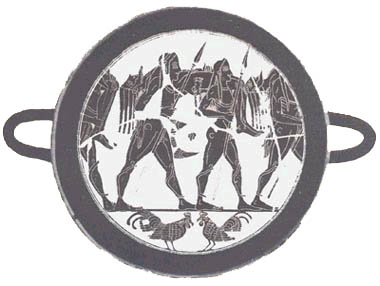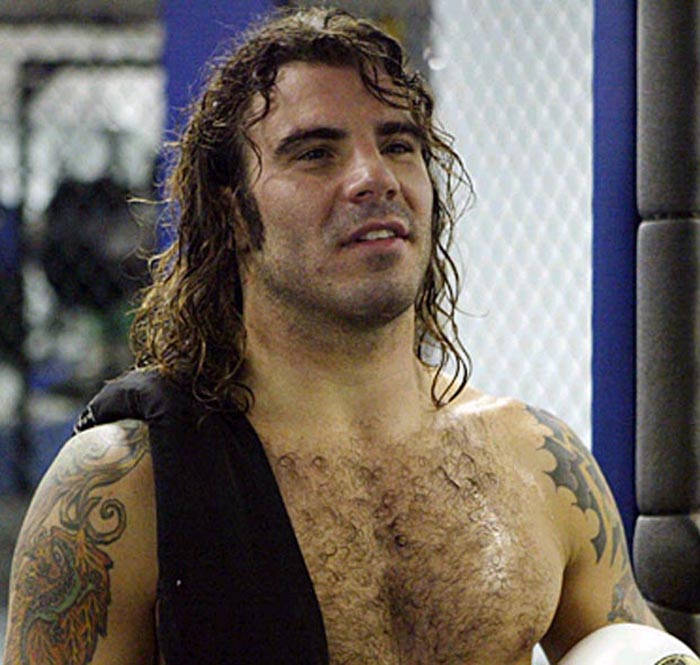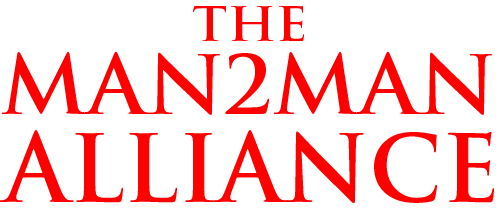







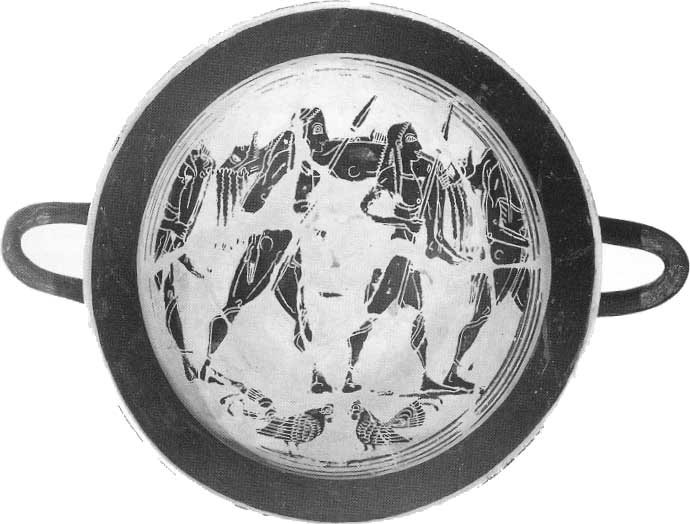


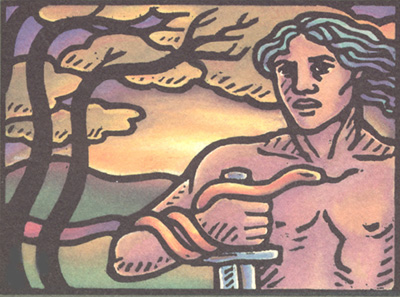


A G O G E
the spear-points of young men blossom there
A Nation of Heroes: State-Education in Sparta
7-5-08
Hi guys,
Hopefully you've been reading AGOGE IV: Excellence, Honor, and the Molding of Men.
And through that post you've been introduced to the Greek word "areté" and the Greek idea of excellence;
and to the work of Werner Jaeger as well.
And guys, if you haven't read that post yet, you'll need to read at least the first section of it in order to understand this post.
Now, in his monumental and magesterial work Paideia: The Ideals of Greek Culture, Jaeger has a chapter titled "State-Education in Sparta."
And what Jaeger tells us is that, as I've said, the other Greeks admired the system of state-education in Sparta, and that Spartan ideas about and the Spartan ideal of such education had a tremendous impact on Greek thought.
Indeed, part of Jaeger's chapter on "State-Education in Sparta" is titled "Historical Tradition and the Philosophic Idealisation of Sparta";
and when Jaeger says "philosophic idealisation," he's not referring to people like me.
Rather, he's referring primarily to Plato, and to other ancient Greek philosophers as well.
But Plato, as we'll see, is certainly first in line of those who idealized aspects of the Spartan system.
Werner Jaeger, by the way, wasn't a fascist or crypto-fascist -- he was a humanist who fled Nazi Germany rather than collaborate with the Hitler regime.
Yet he says that Sparta was a great nation.
And that the Spartan system of state education was core to Greek ideas about paideia.
Paideia, remember, is a word which can mean "child-rearing" -- the word "pais" means child -- but which ultimately comes to mean "education" and "culture" in the highest sense of both words.
Paideia is the Molding of Men.
And, insists Jaeger, only a Man-centered culture like the Greeks could have conceived of it.
Now, some of what you're going to read may be a tad difficult for you, but the central idea is that Sparta was enormously important in the development of the Greek concept of paideia -- which in turn, Jaeger argues, was itself the most important concept in Greek culture.
And to help your reading, here are definitions of some words and terms which we've talked about before, but which might not be immediately familiar to you:
Most people today agree that Lycurgus did exist; but there's disagreement on how much influence he actually had on Spartan society; and on what parts of that society he influenced.
Here's Jaeger, who begins with a discussion of the polis:
Greek culture first assumed its classical form in the polis, or city-state.
...
The centre of gravity of Greek life lies in the polis. It is the polis which includes and defines every form of social and intellectual activity. In early Greek history, every branch of intellectual life grows straight from the same root, the life of the community. Or, to change the metaphor, all intellectual activities are brooks and rivers which flow into one central sea -- the life of the city -- which in turn feeds them all at their sources by invisible subterranean channels.
So: the city-state is the key unit of organization in Greece; and Sparta, of course, was a city-state.
Jaeger continues by contrasting the Ionian and Dorian city-states.
The Ionian states were found primarily in Asia Minor, what is today Turkey -- ancient cities like Pergamum -- and in Attica -- cities like Athens.
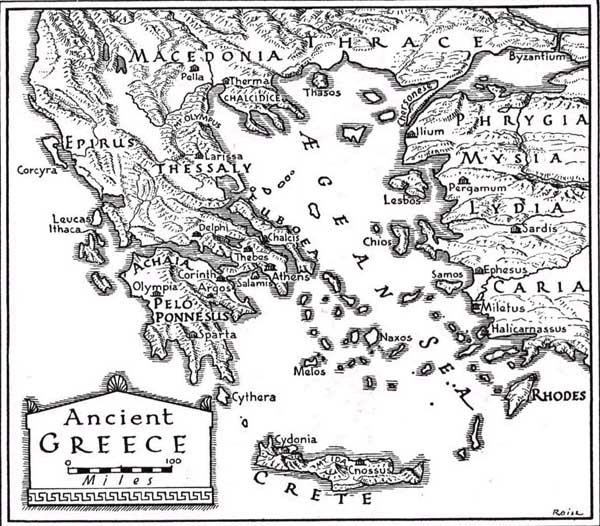
The Dorian states were located primarily in that part of mainland Greece known as the Peloponnese -- eg, Sparta; and on Crete.

Indeed, in Plato's dialogue known as the Laws, the three characters are an Athenian, a Spartan, and a guy from Crete -- culturally, an Ionian and two Dorians.
The Dorians were the last of the Greek invaders, and tended to be more "military" in their outlook than the Ionians.
It's also believed that they retained more of the original Warrior Greek institutions than did the Ionians.
But as Jaeger points out, the two types of state eventually merged -- at least intellectually:
...the political and spiritual differences between the Dorian and Ionian types are quite clearly marked in the polis. The two types finally unite in the Athens of the fifth and fourth centuries. For in that period the political life of Athens was molded on the Ionian pattern, while the Spartan ideal was reborn in the realm of the intellect, through the aristocratic influence of Attic [Athenian] philosophy, and eventually, in Plato's cultural ideal, coalesced in a higher unity with the fundamental tenets of the Ionian and Attic constitutional state, stripped of its democratic form.
Historical Tradition and the Philosophic Idealisation of Sparta
Both in the history of philosophy and in that of art, Sparta holds a subordinate position. The Ionian race [the Greeks of Asia Minor and Athens, etc], for example, led Greece in the search for philosophical and ethical truth; but no Spartan name occurs in the long roll of Greek moralists and philosophers.
However, Sparta has an unchallengeable place in the history of education. Her most characteristic achievement was her state; and the Spartan state is the first which can be called, in the largest sense, an educational force.
...
[Jaeger then cautions that the idea of Spartan education as purely military must be seen in terms of the times in which it arose: the aftermath of the Peloponnesian War, with Spartan military hegemony throughout Greece. And he adds]
... [What the Greeks regarded as] the legislation of Lycurgus was not a codification of separate civil and constitutional laws, but a nomos in the original sense of the word -- it was a current oral tradition. ... This fact contrasted sharply with the cacoethes of legislation which afflicted the democracies of the fourth century, and seemed to contemporary observers to be not a survival of primitive practice but an example of the far-seeing wisdom of Lycurgus, who, like Socrates and Plato, believed the power of education and the creation of the social sense to be more vital than any written code of laws.
...
In fact, Plato's ideal, like other theories of paideia, was largely based on the Spartan model, although the spirit of it was quite new.
...
[The] tradition [of the Lycurgan constitution] was created by an age which thought the Spartan system was deliberately created to serve an educational purpose, and which believed a priori that the highest end and meaning of the state was paideia -- namely, a process by which the life of each citizen should be shaped to conform with some absolute norm. ... If we wish to understand [the historical force of the idea of the Lycurgan constitution] properly, we must remember that it grew up when Greek speculation about the nature and principles of paideia was at its height, and when educational theorists had a burning interest in Spartan affairs. Its survival (and the preservation of Tyrtaeus' poems) is due to the vital importance of the Spartan ideal in the later development of Greek paideia. [26]
Footnote 26: More accurately speaking, we can trace back the tradition about Lycurgus to two different periods in the spiritual history of Greece. It first originated in the time when rational speculation about the best form of the state (eunomia) started, i.e. in the sixth-fifth centuries. This speculation is reflected in the report of Herodotus I, 65 ff. The second impulse came from the pedagogic and philosophic discussion of the time during and after the Peloponnesian War. This phase is represented by men like Critias, Plato, and Xenophon. The first phase stressed the religious (Delphic) origin and authorization of the Spartan cosmos. The second elaborated on the paideutic [educational] structure of the Spartan system.
[And adds Jaeger, in another footnote (8),]
Plato in Laws 629a and 660e chooses Tyrtaeus as the outstanding representative of the Spartan spirit and its ideal of areté, and he illustrates this by quoting from his poems. In Plato's time Tyrtaeus was generally accepted as the herald of Spartan virtue, and in Sparta everyone was impregnated with the ideals of his poetry (Laws 629b). ...Jaeger continues:
A Spartan held his citizen rights in virtue of his status as a soldier. Tyrtaeus is the first author to describe this ideal of the citizen-soldier, which was later realized in the whole Spartan educational system. ...
...
[Tyrtaeus arrived at a time in Sparta's 20-year-long struggle with the Messenians when Sparta was losing -- badly.]
And indeed, tradition described Tyrtaeus as the leader sent to the Spartans by the Delphic Apollo, to save them in their danger.
Tyrtaeus' Call to Areté The will which made Sparta a great nation still lives in the elegies of Tyrtaeus. It had the power to create a great ideal, a power which long survived historical Sparta, and is not yet exhausted; and these poems are the strongest manifestation of that power. ... [T]he ideal which inspired [Sparta's] citizens, and towards which, with iron consistency, every effort of every Spartan was directed, is imperishable because it is an expression of a fundamental human instinct. Although the society which incorporated it appears to us to have been partial and limited in its outlook, the ideal itself remains true and valuable. Plato himself considered the Spartan conception of the citizen's functions and education to have been narrow-minded, but he saw that the Spartan idea immortalized in Tyrtaeus' poems was one of the immutable bases of political life. The Greeks of his time did not give unqualified approval to Sparta and her policy, but they recognized the value of her ideal. ...
[T]he position which Plato alloted to Tyrtaeus in his cultural system remained valid for the Greeks of all subsequent ages, and was an indefeasible element of their culture. It was Plato who arranged and systematized the spiritual inheritance of his nation: in his synthesis, the various ideals which inspired Greece are objectified and set in their correct relationships. Since then, no great change has been made in his system; and the Spartan ideal has for two thousand years kept the position in the history of civilization which Plato assigned to it. [37]
Footnote 37: This admiration for Spartan valour and its expression in Tyrtaeus' poems should not be confused with the philo-Laconism of political reaction of later centuries. The spirit of Leonidas, who died with his Spartans at Thermopylae for the freedom of Greece, after the soldiers of other cities had abandoned their positions, remains the genuine monument of that ideal.
The elegies of Tyrtaeus are inspired by a mighty educational ideal. The demands which they make on the self-sacrifice and patriotism of the Spartans were no doubt justified by the circumstances in which they were written -- Sparta was almost sinking under the burden of the Messenian war. But they would not have been admired by later ages as the supreme expression of the Spartan will to forget oneself in one's country, if they had not been a permanent and timeless utterance of that ideal. The standards they impose on every citizen's thoughts and actions were not produced by a momentary outburst of warlike patriotism; they were the foundation of the whole Spartan cosmos.
Nothing in Greek poetry shows more clearly how the creative activity of the poet begins in the life of the society to which he belongs. ... he is the universal I, he is what Demosthenes calls "the voice of the country."
...
The Greek poets had for centuries been the heralds of areté, and such a herald now appeared in Tyrtaeus. As we have observed, the legend said he was sent by Apollo -- a striking expression of the strange truth that when a spiritual leader is needed he always comes. Tyrtaeus came to express in eternal poetry the new civic virtues which were needed in the national crisis.
[Jaeger then explains the difference between "elegiac" and "heroic" -- or "epic" -- poetry:]
Apart from the elegiac metre itself -- which in the earliest times had no special name to distinguish it from the heroic metre -- there is only one constant element in elegiac poetry. It is always addressed to someone : either to one individual or to a collective of people. ... Tyrtaeus, for example, speaks either to the citizens of Sparta or to the young men of Sparta. ... The epic with its mythical examples is set in an imaginary world; the elegy, with its address to real concrete people, takes us into the actual situation which inspired the poet.
[Jaeger then explains that Tyrtaeus] borrowed much of Homer's language, words, phrases ...
Even in the epic, the speeches made at the crises of the fighting have a strongly protreptic [hortatory -- encouraging and instructing] effect. They seem to be addressed not so much to the other characters as to Homer's audience. Certainly the Spartans felt that effect very strongly. Tyrtaeus had only to transfer the vast moral impetus of these speeches from Homer's imaginary battles to the real struggles of the Messenian war, and he had created his elegy. We shall understand that spiritual transference better if we read Homer as the age of Tyrtaeus and Hesiod read him -- not as the narrator of the past, but as the teacher of the present.
...
[Jaeger then looks at this poem by Tyrtaeus, which we've seen before, though in a slightly different form; here I'm using a prose translation by Douglas Gerber.
Tyrtaeus begins by deprecating values which are dear to the aristocracy:]
I would not mention or take account of a man for his prowess in running or wrestling, not even if he had the size and strength of the Cyclopes and outstripped Thracian Boreas in the race, nor if he were more handsome than Tithonus in form and richer than Midas and Cinyras, nor if he were more kingly than Pelops, son of Tantalus, and had a tongue that spoke as winningly as Adrastus', nor if he had a reputation for anything -- save furious valour.
For no man is good in war unless he can endure the sight of bloody slaughter and, standing close, can lunge at the enemy.
This is excellence, this the best human prize and the fairest for a young man to win.
This is a common benefit for the state and all the people, whenever a man with firm stance among the front ranks never ceases to hold his ground, is utterly unmindful of shameful flight, risking his life and displaying a steadfast spirit, and standing by the man next to him speaks encouragingly.
This man is good in war. He quickly routs the bristling ranks of the enemy and by his zeal stems the tide of battle.
And if he falls among the front ranks, pierced many times through his chest and bossed shield and corselet from the front, he loses his own dear life but brings glory to his city, to his people, and to his father. Young and old alike mourn him, all the city is distressed by the painful loss, and his tomb and children are pointed out among the people, and his children's children and his line after them. Never do his name and good fame perish, but even though he is beneath the earth he is immortal, whoever it is that furious Ares slays as he displays his prowess by standing fast and fighting for land and children.
And if he escapes the doom of death that brings long sorrow and by his victory makes good his spear's splendid boast, he is honoured by all, young and old alike, many are the joys he experiences before he goes to Hades, and in his old age he stands out among the townsmen; no one seeks to deprive him of respect and his just rights, but all men at the benches yield their place to him, the young, those of his own age, and the elders.
Let everyone strive now with all his heart to reach the pinnacle of this excellence, with no slackening in war.
Jaeger:
[Tyrtaeus] has recast the Homeric ideal of the single champion's areté into the areté of the patriot, and with that new faith he strives to inspire his whole society. He is endeavouring to create a nation of heroes. Death is beautiful if it is a hero's death; and to die for one's country is a hero's death. That is the only thought which can exalt a dying man, by making him feel that he is sacrificing himself for a higher good than his own life.
[This is, adds Jaeger, a "transvaluation of the idea of areté".]
[The dead soldier, says Tyrtaeus,] though he lies beneath the earth, becomes immortal.
The glory of a Homeric hero, however widely it is disseminated by the wandering bard, is nothing to the glory of a simple Spartan warrior, as Tyrtaeus describes it, laid up forever deep in the hearts of his people. The close community of the city-state, which seemed at the beginning of the poem to be only an obligation, now appears a privilege and an honour: it is the source of all ideal values. The first part [of the poem] states the heroic ideal of areté in terms of the city-state. The second restates, in the same terms, the heroic ideal of glory. Areté and glory are inseparable in the epic. Glory is now to be given, and areté exercised, by and in the city-state. The polis lives when the individual dies; and so it is a safe guardian of the 'name' and with it, of the future life of a hero.
The early Greek city-state was small, but it had something truly heroic and truly human in its nature. Greece, and in fact all the ancient world, held the hero to be the highest type of humanity.
Bill Weintraub:
Now, I know that's a lot of information, but let's look at the key points:
- Sparta believed in "the power of education."
- "Plato's ideal, like other theories of paideia, was largely based on the Spartan model."
- Via Plato, "the Spartan ideal was reborn in the realm of the intellect."
- Greek "educational theorists had a burning interest in Spartan affairs. [The Lycurgan constitution's] survival (and the preservation of Tyrtaeus' poems) is due to the vital importance of the Spartan ideal in the later development of Greek paideia."
- "A Spartan held his citizen rights in virtue of his status as a soldier. Tyrtaeus is the first author to describe this ideal of the citizen-soldier, which was later realized in the whole Spartan educational system. ..."
- "[T]he ideal which inspired [Sparta's] citizens, and towards which, with iron consistency, every effort of every Spartan was directed, is imperishable because it is an expression of a fundamental human instinct."
- "Plato ... saw that the Spartan idea immortalized in Tyrtaeus' poems was one of the immutable bases of political life. The Greeks of his time did not give unqualified approval to Sparta and her policy, but they recognized the value of her ideal."
- "the Spartan ideal has for two thousand years kept the position in the history of civilization which Plato assigned to it."
- "The spirit of Leonidas, who died with his Spartans at Thermopylae for the freedom of Greece, after the soldiers of other cities had abandoned their positions, remains the genuine monument of that ideal."
- "The elegies of Tyrtaeus are inspired by a mighty educational ideal" -- the Spartan educational ideal.
- [Tyrtaeus and the Spartans were] "endeavouring to create a nation of heroes."
- "The glory of a Homeric hero, however widely it is disseminated by the wandering bard, is nothing to the glory of a simple Spartan warrior, as Tyrtaeus describes it, laid up forever deep in the hearts of his people."
- "The early Greek city-state was small, but it had something truly heroic and truly human in its nature. Greece, and in fact all the ancient world, held the hero to be the highest type of humanity."
The hero is the highest type of humanity;
and moral heroism is the highest expression of areté.
Sparta's AGOGE then was a system for creating heroes.
And these heroes were not mythic -- they were, rather, real: simple Spartan warriors, citizen-soldiers -- and heroes.
That's Sparta's achievement, and why Sparta lives.
And look at how it was done.
Through the Agoge.
"Plato's ideal, like other theories of paideia, was largely based on the Spartan model."
What was "the Spartan model?"
The AGOGE.
In his chapter, Jaeger doesn't go into the specifics of the Agoge.
But classical writers did, including Plutarch, Xenophon, and Pausanias.
The AGOGE.
At the age of seven all Spartan boys were taken from their mothers and made to live in all-male groups where they were trained in the arts of war and survival.
Plutarch, writing ca 100 AD, says the boys were taught
to endure pain and conquer in battle. To this end, as they grew in years, their discipline was proportionately increased; their heads were close-clipped, they were accustomed to go barefoot, and for the most part to play naked.
After they were twelve years old, they were no longer allowed to wear any undergarment; they had one coat to serve them a year; their bodies were hard and dry, with but little acquaintance of baths and unguents; these human indulgences they were allowed only on some particular days in the year. They lodged together in little bands upon beds made of rushes that grew by the banks of the river Eurotas, which they were to break off with their hands without a knife; if it were winter, they mingled some thistle down with their rushes, which it was thought had the property of giving warmth. By the time they were come to this age there was not any of the more hopeful boys who had not a lover to bear him company.
The boys had lovers.
The affairs were intense.
Very intense.
The Encyclopedia -- encyclo-paideia -- Britannica says that a system of "homosexual pairbonding" kept the usual hoplite bonds at a level of "ferocious intensity."
Ferocious intensity.
Ferociously intense.
There were three categories of males within the agoge:
1. Boys / youths aged 7 - 18, called paides.
2. Youths, ages 18-19, called paidiskoi.
3. Young adults, aged 20-29, called hebontes or eirenes.
At the age of 30, men married, and joined an all-male dining club or mess, the syssition.
This is classicist W. G. Forrest's description of the agoge:
... After six years with his mother, the child who had been accepted was taken from home and enrolled in a group of his contemporaries under the leadership of an older boy ...
With his group the boy lived for the next fourteen years as he worked his way up through the increasingly brutal and brutalising training schedules which passed for education among the Spartans. Music and dancing he would learn, for both had their military uses, but reading and writing, as Plutarch remarks, 'only because they were unavoidable'. For the rest everything was designed to produce toughness, endurance and discipline ...
So schooled, at the age of twenty or thereabouts, the young man graduated to another class, that of the so-called eirenes, in which he remained for a part, perhaps even the whole of, his twenties, not yet a full citizen but liable for military service and for the time being occupied in doing to others as he had been done by, acting as leader of a younger group, ... and, a nice touch, allotted to one of two large teams to encourage rivalry in bravery, such rivalry that 'members of each team fall to fighting each other whenever they meet'.
At the age of thirty the Spartan was admitted to the assembly. Whether he had already received the other mark of manhood, admission to a syssition [an eating-club or mess], either on becoming an eiren or on ceasing to be one, is unknown ...
This was the last formal test the Spartan had to pass. Beyond it lay freedom, freedom to marry, to lead something like a normal life. His duties were light -- he had to dine with his fellows, to train with them and to fight with them; and from his kleros [land allotment] he had to provide the stipulated contribution to maintain the mess.
But it is easy to underestimate the effect even of this amount of communal living in a society where there was no other focus for a man's interests. The Spartan did not work -- he trained, with the men of his mess, he fought, with the men of his mess, or he was idle, again for the most part, one would imagine, with the men of his mess.
As we've discussed before, Forrest, who wrote in the late 1960s, was hostile to Sparta.
And as you can see in that quote, it's because he was speaking for his own, highly heterosexualized, culture.
For example, he says that once a Spartan had been admitted to the Assembly, it was "the last formal test the Spartan had to pass. Beyond it lay freedom, freedom to marry, to lead something like a normal life."
Forrest is wrong.
First of all, it wasn't "freedom" as we think of it, because the marriage would have been arranged.
Unlike Prof Forrest, who presumably got to choose his wife, a Spartan -- we'll call him Alcon -- wouldn't have.
Alcon's marriage would have been arranged.
The one truly free relationship in a Spartan's life would have been that with his male lover.
Alcon and -- let's call him Sebros -- would have chosen each other.
And that's where Alcon and Sebros' freedom lay -- in their free choice of each other.
It was that freedom which gave such relationships their "ferocious intensity."
Remember again, that in the ancient world, marriage, as John Boswell puts it, was "for family and country"; while a male lover was "a friend inspired by God."
Furthermore, Forrest assumes that marriage in some way defines "a normal life."
In reality, as Forrest himself admits, the all-male or homosocial aspects of the Agoge and Sparta were for millenia the hallmarks -- the normative, normal, common, and ubiquitous hallmarks -- of Warrior societies worldwide:
...almost every aspect of the full Spartan practice can be paralleled among backward warrior tribes today. The age-groups, the communal life, the initiation ceremonies, all had been handed down through generations as have similar institutions among the Masai in Kenya, the Zulus, or the Red Indians.
~ Forrest, A History of Sparta 950 - 192 BC
You can hear Forrest's racism and contempt -- he's writing in 1968 -- in terms like "backward" and "Red Indians."
But when he says, "almost every aspect of the full Spartan practice can be paralleled among backward [sic] warrior tribes today. The age-groups, the communal life, the initiation ceremonies, all had been handed down through generations..."
-- my reply is -- Indeed.
That's why it appealed -- and appeals.
That's why it was so effective.
And why it was so extensive.
Jesus, for example, and as we've discussed, not only had but one cloak, but traveled around in homosocial -- all male -- groups.
While holding a special affection for a guy named John.
In point of fact, the Spartan ideal was well-known among the Jews of Jesus' day.
Greeks had been living in Palestine since at least 323 BC and probably a good deal before.
Indeed, the Maccabees -- ca 168 BC -- had *proudly* compared themselves to Spartans -- as did many warrior bands in the Greco-Roman world.
As have Warriors ever since.
Because, as Jaeger says,
- "the Spartan ideal has for two thousand years kept the position in the history of civilization which Plato assigned to it."
- "The spirit of Leonidas, who died with his Spartans at Thermopylae for the freedom of Greece, after the soldiers of other cities had abandoned their positions, remains the genuine monument of that ideal."
Every ancient Warrior knew that story; every modern Warrior knows that story.
That history.
So -- what've I told you about Sparta and its importance in Greek history isn't some Weintraubian eccentricity -- it's the truth.
The one person who actually seems to understand that truth is Frances -- who's a Woman.
Maybe all you putative men -- should WAKE UP.
Now, in Excellence, Honor, and the Molding of Men, I describe and document how Fighting was literally central to paideia:
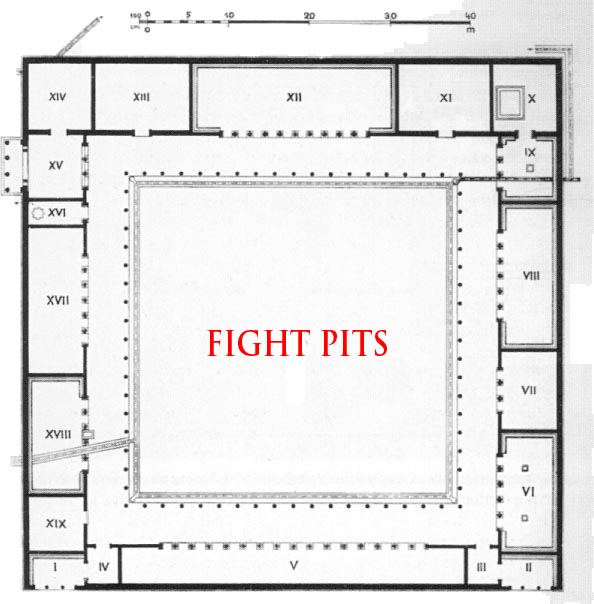
Schematic of the palaestra at Olympia
The Fight Pits are in the center of the building;
they're surrounded by classrooms for teaching philosophy, rhetoric, and other subjects
So the palaestra, whose name derives from the word "pale" for wrestling, is basically a fight space surrounded by classrooms.
Where males were instructed in paideia -- culture.
A palaestra was to be found in EVERY Greek city-state.
There was a palaestra in every polis.
What about Sparta?
Well, we know there was a palaestra in Sparta -- Statius refers to the dusty ring where Hermes himself instructed the boys in boxing and wrestling ...
[There are Spartan warriors from] steep Taygetus
And hardy squadrons from Eurotas where
The white swans breed. The god of Arcady
Himself had reared them in the dusty ring
And trained them in the ways of angry war
And naked valour; hence their high resolve
And sweat the sacrament of glorious death.
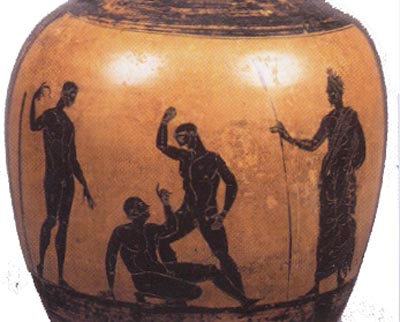
And in Statius' poem The Thebaid, the Spartan Alcidamas, who takes on a much larger man in boxing, had been trained by Polydeukes -- the Roman Pollux -- also a god:
At length from Sparta's naked ranks there sprang
Alcidamas, to their surprise, and made
The Dorian princes marvel, but his friends
Knew he'd grown up in Pollux' boxing-ring
And trusted in his trainer. Hands and arms
Pollux himself had guided -- limbs he loved! --
And sparring with him many a time admired
His matching fury and, exultant, snatched
Him up and pressed him naked to his chest.
Alcidamas, by the way, wins the match.
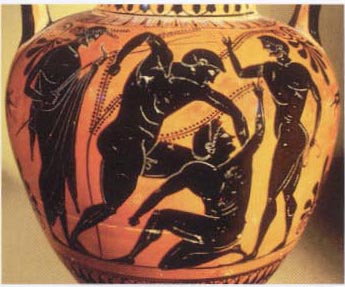
So there was a palaestra and the boys learned how to fight there;
but there were other institutional inducements to fight built into the Agoge.
For example, looking again at Plutarch, we learn that the boys were organized into Trooops or Herds -- Herds is the Spartan word -- in which they were accustomed to
live together and be brought up together, playing and learning as a group. The captaincy of the Troop was conferred upon the boy who displayed the soundest judgement and the best fighting spirit. The others kept their eyes on him, responded to his instructions, and endured their punishments from him, so that altogether this training served as practice in learning ready obedience. Moreover, as they exercised, boys were constantly watched by their elders, who were always spurring them on to fight and contend with one another; in this their chief object was to get to know each boy's character, in particular how bold he was, and how far he was likely to stand his ground in combat.
So -- the boy with the "soundest judgement and best fighting spirit" was made group captain.
And the elders were constantly "spurring the boys on to fight and contend with each other."
Fighting then was part of the daily training of the youths.
As it was, it must be said, in every polis.
The Spartan boys were also questioned at the Men's Messes on subjects such as
"Who among the men is the best?" or "What is your opinion of so-and-so's action?" Thereby boys grew accustomed to judging excellence and making a critical appraisal of the citizens right from the start. ... Answers had to be reasoned, supported by argument, and at the same time expressed with brevity and conciseness....
Whether a boy's standing was good or bad, his lover shared it. There is a story that once when a boy had let slip a despicable cry in the middle of a fight, it was his lover whom the magistrates fined. Sexual relationships of this type were so valued that respectable women would in fact have love-affairs with unmarried girls.
~ Plutarch, Life of Lycurgus, translated by Talbert
We'll return to the question of the status of women and love affairs between women in a bit.
For now I just want you to see that fighting was part of the boys' daily training, and it was overseen by both the Herd-leader and other adult male Spartans -- the Spartiates.
And that the youth's lover was held responsible for, in effect, making sure that the boy showed the proper fighting spirit.
And then there was another level of institutionalized fighting in Sparta.
It was called Plantanistas, or Plane-tree Grove.
And clearly its significance was very great.
Here's its description from Pausanias, a Greek writer who lived in the second century AD, and who starts with a description of other athletic and educational facilities in the town:
The Lacedaimonians [Spartans] give the name Dromos (Running Course) to the place where it is the custom even down to the present day to practice running. ... In the course are two Gymnasia, one being a votive gift of Eurycles, a Spartan. Outside the Course, over against the image of Heracles, there is a house now belonging to a private individual, but in olden times to Menelaus. Farther away from the course are sanctuaries of the Dioscuri, of the Graces, of Eileithyia, of Apollo Carneus, and of Artemis Leader. ... At the beginning of the Dromos are the Dioscuri Starters, and a little further on a hero-shrine of Alcon, who they say was a son of Hippocoon.
Beside the shrine of Alcon there is a sanctuary of Poseidon, whom they surname "of the House." And there is a place called Plantanistas (Plane-tree Grove) from the unbroken ring of tall plane-trees growing around it. The place itself, where it is customary for the youths to fight, is surrounded by a moat just like an island in the sea; you enter it by bridges. On each of the two bridges stand images; on one side an image of Heracles, on the other a likeness of Lycurgus. Among the laws Lycurgus laid down for the constitution are those regulating the fighting of the youths.
There are other acts performed by the youths which I will now describe. Before fighting they sacrifice in the Phoebaion, which is outside the city, not far distant from Therapne. Here each company of youths sacrifices a puppy to Enyalius [Ares], holding that the most valiant of tame animals is an acceptable victim for the most valiant of the gods. I know of no other Greeks who are accumstomed to sacrifice puppies other than the people of Colophon; these too sacrifice a puppy, a black bitch, to the Wayside Goddess. Both the sacrifice of the Colophonians and the youth of Sparta are appointed to take place at night. At the sacrifice the youths set trained boars to fight; the company whose boar happens to win generally gains the victory in Plane-tree Grove. Such are the performances in the Phoebaion. A little before the middle of the next day they enter by the bridges into the place I have mentioned. They cast lots during the night to decide by which entrance each band is to go in. In fighting they use their hands, kick with their feet, bite, and gouge out the eyes of their opponents. Man to man they fight in the way I have described, but in the mellay they charge violently and push one another into the water.
~Pausanias, III, xiv. Translated by Jones and Ormerod.
In addition to the sacrifice in the Phoebaion, Pausanias notes further along in his description of Sparta that the youths sacrifice to Achilles in his sanctuary:
[There's also a] sanctuary of Achilles. This is not customary to open [to the public], but all the youths who are going to take part in the contest ["agon"] in Plane-tree Grove are wont to sacrifice to Achilles before the fight ["maches"]. The Spartans say that the sanctuary was made for them by Prax, a grandson of Pergamus, the son of Neoptolemus [who was Achilles' son].
~Pausanias, III, xx.
Let's take a look at what Pausanias has said, and see what other information we have about these fights.
For one thing, Pausanias says that there were two Gymnasia by the Dromos or Running Course.
And that may be.
However, while Pausanias wrote in Greek, he was writing for a Roman audience; and given that the word "gymnasium" was more familiar to the Romans, my guess is that of the two structures, one was a gymnasion and the other a palaestra, and that they abutted each other the way the gymnasion and palestra did at Olympia:
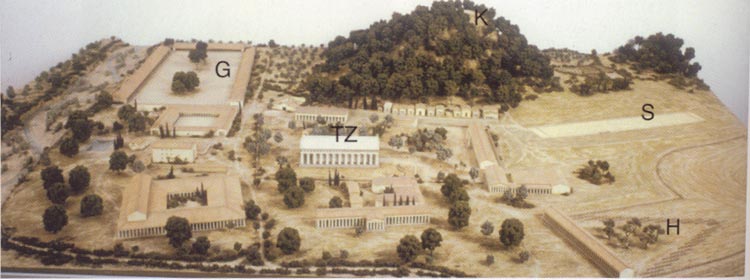
In this model of Olympia, TZ = the Temple of Zeus; G = gymnasion; and the palaestra is the smaller square building immediately to the south of the gymnasion
Now, Xenophon confirms, in his book Spartan Society, that the young adult males were separated into two, rival, groups,
... and the two groups are on the lookout for any negligent act which may contravene accepted standards of honour. This is also the type of competition most highly favored by the gods and best suited to a citizen community -- in which the conduct required of the brave man is spelled out and each of the two groups independently strives to ensure that it will always prove superior, while should any need arise they would as one protect the city with all their might. They must keep themselves physically fit too, since their rivalry actually makes them come to blows whenever they meet. ...
So we know that there were rival groups formed among the young adults, and such groups may have existed among other age groups as well -- I would be sure they did.
And Xenophon tells us that the guys would fight each other whenever they met up.
While Pausanias tells us that fights between the groups were organized, that there was a special place for the fights, and that the fighters sacrificed to the gods the day and/or evening before the contest began.
Pausanias also says that the boys were required to sacrifice a puppy.
Where have we heard something like that before?
Among the American Sioux, in Charles Eastman's memoir An Indian Boyhood.
Eastman recounted how, as a child, he was required to sacrifice his own dog, whom he greatly loved, to the "Great Mystery."
Obviously such a sacrifice would be very painful and difficult for a boy.
But he did it -- and so did the Spartan boys.
And I'm sure the reasoning was the same among the Spartans as it was among the Sioux:
that the young Warrior must learn the true meaning of sacrifice.
And that he's able to make that sacrifice.
In Eastman's account, he's asked by his grandmother to give up that which is most dear to him.
And that's what it has to be.
Now, the Fighting Pausanias describes sounds like it was a special occasion, involving sacrifices to Ares and Achilles beforehand, and observed or if you prefer, as I do, celebrated, in a special place: Plane-tree Grove.
And Pausanias tells us that Plane-tree Grove was an artificial island, accessed by bridges, and that "On each of the two bridges stand images; on one side an image of Heracles, on the other a likeness of Lycurgus.".
Lycurgus of course was the Spartan law-giver, and he was the person who had regulated, says Pausanias, "the fighting of the youths."
So again, this was part of the Agoge as set down by Lycurgus.
And my guess is that the statues of Lycurgus were on the "mainland" side of the bridge;
but that the statues of Herakles were on the island itself.
Because Herakles was one of the tutelary or guardian gods of palaestrae everywhere, and statues of Herakles were common in Fight and other athletic spaces all over the ancient world, as we can see from this Roman-period terracotta:
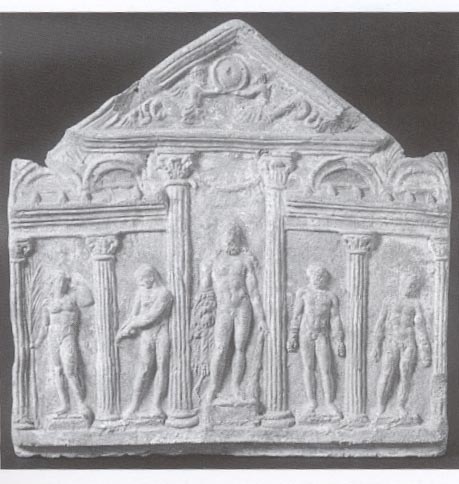
Herakles is in the center,
two boxers on the right,
two other athletes, one a victor, on the left
Herakles was represented in the Fight Space not only because he was a symbol of strength, but because his fight with the Nemean lion was the mythical model for the pankration:
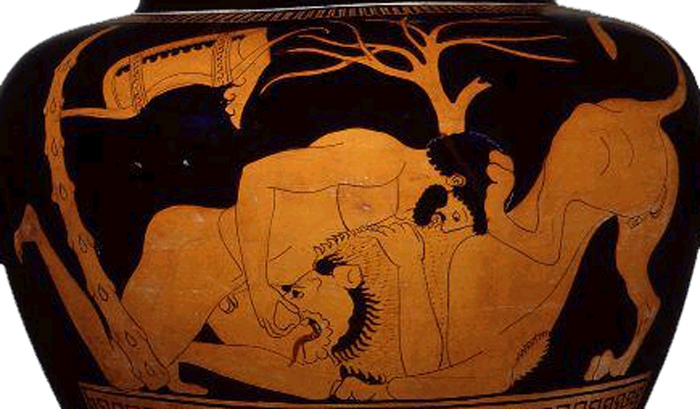
Herakles battles the Nemean lion
Notice how the genitals of both man and beast are prominently displayed
Remember that people in the ancient world engaged in a process we call "mythic identification" -- they identified with mythic figures and modeled their own lives on those of their mythic heroes.
Pan-kration means "all-powerful"; and Herakles was, as Professor Miller tells us in Ancient Greek Athletics, "the patron deity of pankratiasts."
Now, pankration was an all-in, no holds barred, form of fighting.
And the Fighting in Plane-tree Grove was -- "pankrationic."
It was all-in.
Pausanias says of the young Warriors that "In fighting they use their hands, kick with their feet, bite, and gouge out the eyes of their opponents."
Is that credible?
Yes, because we know that pankratiasts fought that way.
Here for example are two vase-paintings of pankratiasts kicking:
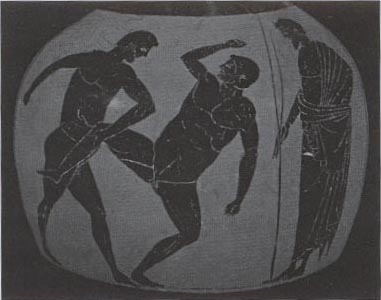
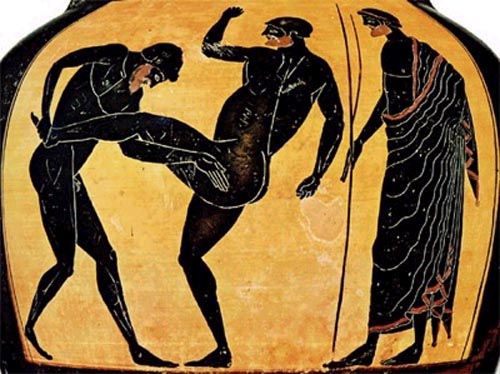
Pankratiasts ca 490 BC
What about eye-gouging?
Yep.
In this vase-painting, also ca 490 BC, the guys on the right are eye-gouging, and it looks like it's against the rules, since the judge is about to whap one or both of them with his stick:
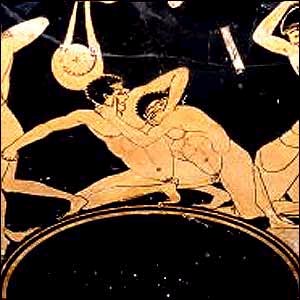
While in the remains of this Hellenistic era (323 - 168 BC) statuary group, a pankratiast is attempting to pull his opponent's hand out of his eye:
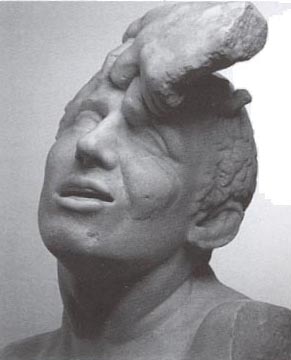
Biting?
I haven't come across any pictures of pankratiasts biting -- but, in the famous statuary group from Olympia of the battle between the Lapiths and Centaurs, a centaur is biting a young man's arm -- and the man winces in pain.
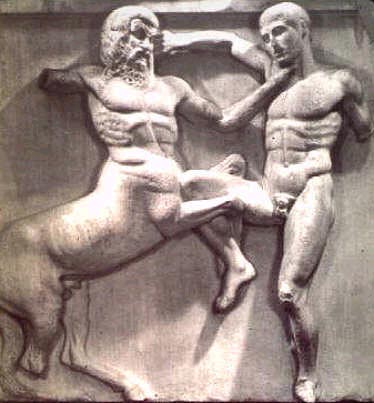
A Centaur battles a Lapith
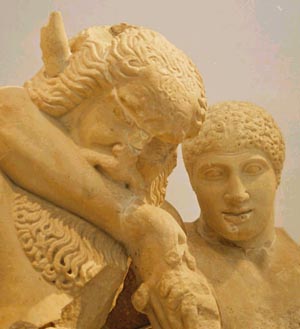
A Centaur bites a Lapith
I should note that, properly speaking, biting and eye-gouging were not allowed in the sport of pankration -- like I said, in the vase-painting of the guys eye-gouging, we can see that the judge is about to whap them with his stick.
But the Fighting in Plane-tree Grove wasn't about sport.
The Spartans weren't interested, on this occasion, in sport.
They weren't training these kids to compete in the Olympics.
They wanted them to learn what was necessary to win a fight.
Remember what Tyrtaeus says in that poem -- I'm not interested, he says, in "prowess in running or wrestling," or whether a guy's good-looking or well-spoken.
Only one thing concerns me, and it's this:
Furious Valour.
Courage in the Fight.
"This is excellence, this the best human prize and the fairest for a young man to win."
So: the point of these exercises, from the Spartan point of view, was to prepare their young men for war, and to win at war, and if that meant biting and eye-gouging -- they'd learn to do it and what to do about it -- that is, how to counter it.
Now, such fighting as Pausanias describes would have been two things:
1. Nude; and
2. Bloody
And here we have a vase fragment of pankratiasts which I've shown you before, but this is the first time we've seen it in color, because this is the first time I've seen it in color.
And as you can see, not only are there bloody handprints on both men's bodies, but both are smeared and spattered with blood:
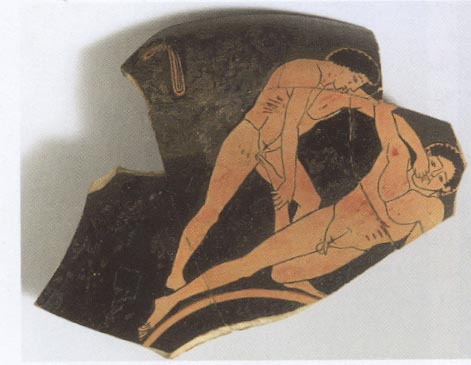
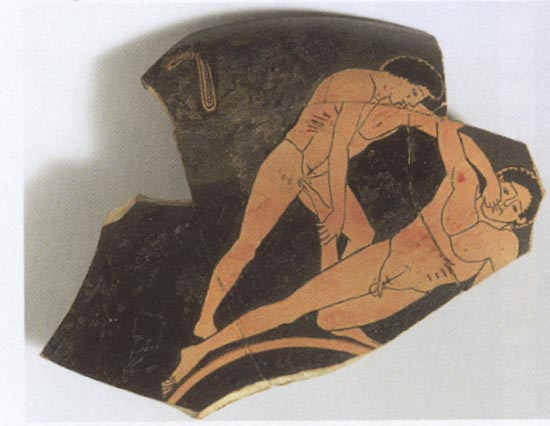
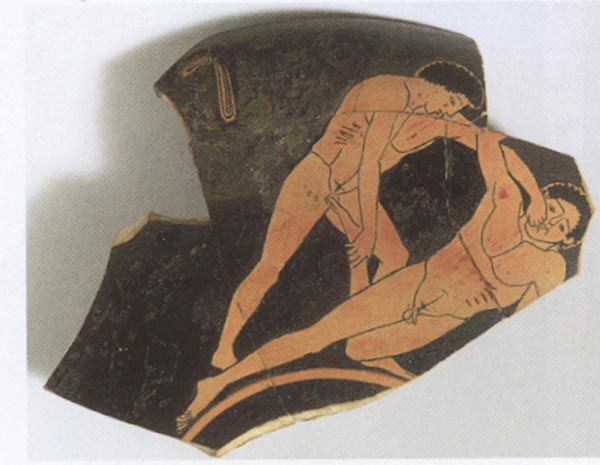
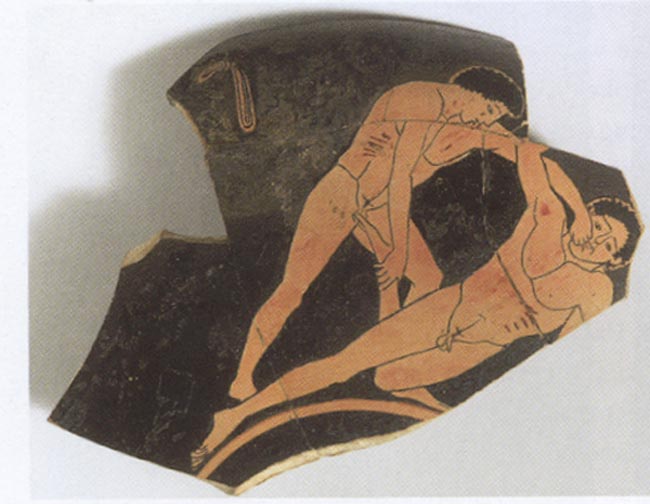
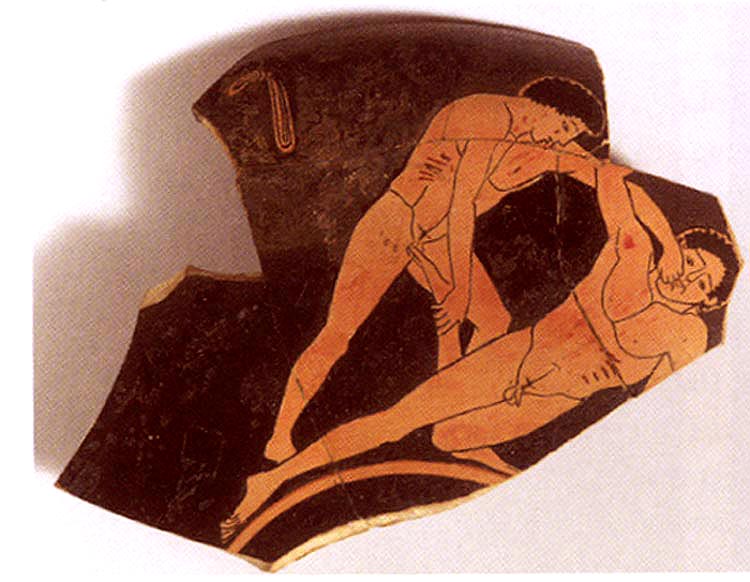
There's a lot of blood, just as there sometimes is in modern-day mixed martial arts.
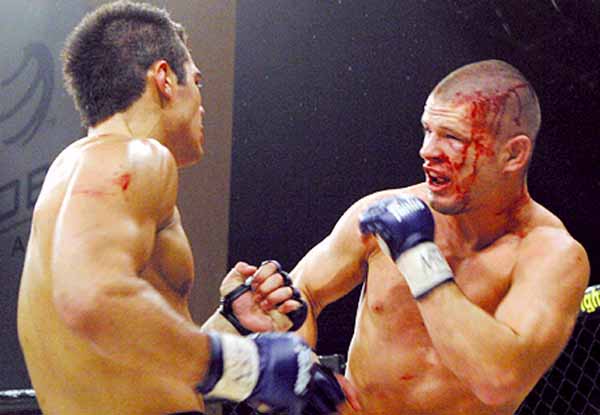
Guys fight, guys bleed.
And this little fragment, because it has a free-form feel, probably best reflects what the Spartan youth would have looked like during those Sacred Fights in Plane-tree Grove.

Indeed, the smearing of the blood is represented very realistically, as we can see if we compare the vase fragment to this picture of contemporary mixed martial arts fighters:
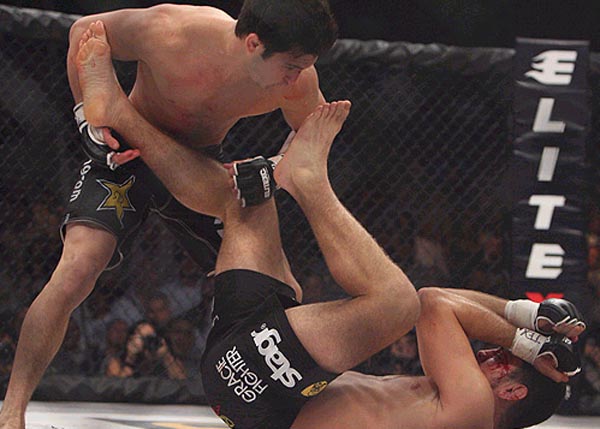
MMA
Notice the blood smears on the standing fighter's body
Now, as you know, even in the year 2008, and even in an elective fight, when guys bleed during a fight it rubs, as it were, a lot of folks the wrong way.
But these were NUDE guys who were bleeding in their fights.

And W G Forrest, our Sparta disparager from 1968, clearly had trouble with that.
Because in his History of Sparta, he speaks sarcastically of this line from Xenophon -- "fell to fighting each other whenever they met."
He says of it that it's "a nice touch."
So Forrest was very dismissive of that team rivalry, which was instituted to encourage bravery.
Yet Fighting, as Forrest certainly knew, was for the ancients a core element of a classical education -- an education designed to produce Areté -- Excellence, Valour, Virtue -- in a Man.
Forrest knew that.
He knew that the palestra -- and its nude Fights -- was core to the way boys learned to be Men -- of culture.
That's right -- culture.
Again, what the Greeks called "Paideia."
That's not news now and it wasn't news in 1968.
Forrest just didn't want to acknowledge it.
Why?
Because the Fighting was skin-on-skin.
And not just skin-on-skin but nude.
"nudamque lacessere pugnam" says Statius.
"and incites to nude combat"
Cock incites cock to nude combat.
Balls incite balls to nude combat.
That's what happens.
The genitals, in which reside the male's virtus -- his Valour -- incite to combat.
incite to nude fight
It's a Latin phrase written by a Roman poet -- but it reflects a Greek -- and Roman -- reality.
Nude, Man2Man, all-in Fighting.
Forrest doesn't like that.
Because it expresses not just aggression but attraction too.
Phallus and Fighting.
Forrest doesn't want to think about that.
Most people don't want to think about it.
But we do.
And guys, for more on this point, please read or re-read AGOGE I: the spear-points of young men blossom there -- and specifically the section titled


In addition, it's also the case, which Forrest doesn't mention, that the fighting was controlled.
Remember that the remark about "fighting whenever they meet" is from Xenophon's Spartan Constitution or Spartan Society -- different translators give it different names -- and that Xenophon goes on to note that
all passers-by [who are full-fledged adult Spartans -- the Men known as Homoioi, Equals, Spartiates] have the right to separate the combatants. Anyone who defies the man attempting to separate them is brought before the ephors by the Trainer-in-Chief. They levy a stiff fine in their desire to establish the principle that anger must never prevail over respect for the law.
So there were limits set to these fights, which were enforced if need be by the ephors -- who were, as we saw in the 300 thread, elected officials with great authority.
(The Trainer-in-Chief, by the way, was called the Paidonomus, which can be translated as "boy-herdsman" or, more poetically, Herder of the Bull Calves)
And the Paidonomus is simply doing what both my foreign friend and NW recognize must be done: he's making sure the bull calves grow up to be Men through an appropriate experience of the roughs and toughs of life TOGETHER.
And it was *together*, as we can see in these scenes:
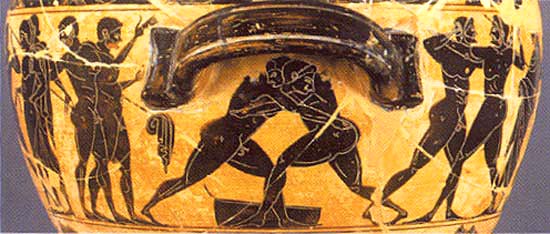
This first may be at an official competition, but it could just be at the Fight School.
Guys wrestling and boxing while other guys watch:

And of course they're not just guys.
They're nude guys.
Nude guys wrestling and boxing while other nude guys watch:

And wait to take their turn.
They'll all get a chance to Fight.
To Fight Nude.
Is the Nudity important?
YES.
Nudity in athletics is, according to the Oxford Classical Dictionary, one of the defining characteristics of ancient Greek civilization.
Wrestling -- and boxing and pankration -- are core to Greek athletics.
Pale / palaestra.
Nude Fighting is core to the palaestra.
And thus core to Paideia.
That conclusion is inescapable.
Nudity matters.
And in this second vase painting, we see three young men of different ages standing nude together, presumably in the undressing room after working out.
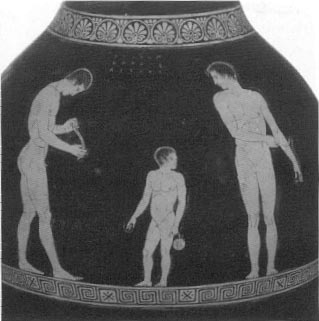
The two older boys have instruments which were used to scrape the oil off their bodies; the younger boy is carrying a container of oil.
But you can see that the three are relaxed, and relaxed in their maleness with each other -- in a way that's difficult to imagine today.

And I want to emphasize how ubiquitous male nudity was.
For example, here are guys participating in a "hoplitodromos" -- a hoplite race:
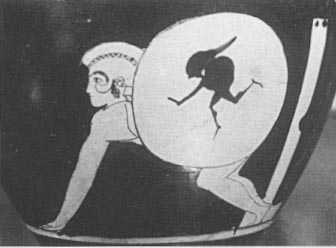
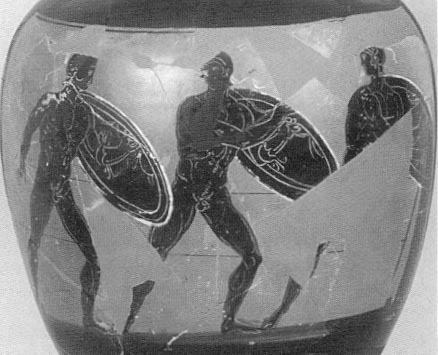
Each man carries a shield and wears a helmet.
And both were heavy.
But otherwise they're nude.
That's how they competed.
And that's how they fought.
Here's a young man putting on a sort of soft leather wrapping for boxing:
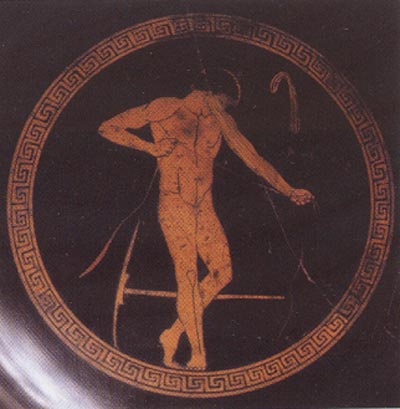
You'll notice something that looks like a piece of cloth hanging in the upper right hand corner of the painting.
That's his garment -- his clothes.
That item is often present in these scenes, as though to say, you see, I wear clothes, but when I fight, I remove them and hang them from a hook, so that I can fight nude -- nude and unfettered.
Look, here it is in this scene -- on the left, between the wrestlers and the on-lookers:

Nudity matters.
Here are more boxers.
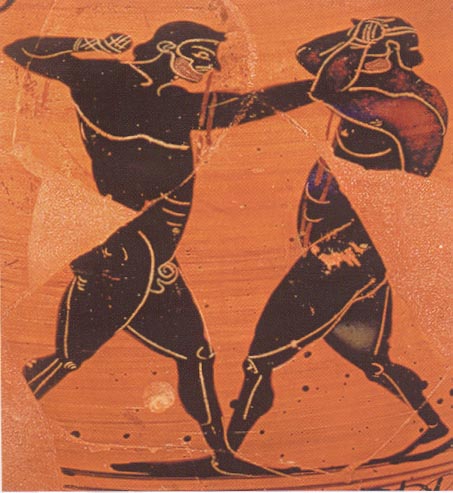
It's all done with the genitals openly displayed.
Here's another example.
One of the major Spartan festivals was called the Gymnopaediae -- which is usually translated as the "Festival of the Naked Youths."
We know the festival was very important because Xenophon tells us that prominent Spartiates boasted of never having missed one.
Yet no one knows for sure what happened at the festival.
But here's a clue.
This is a relief from Athens of youths participating in the pyrrhiche, or Pyrrhic Dance:
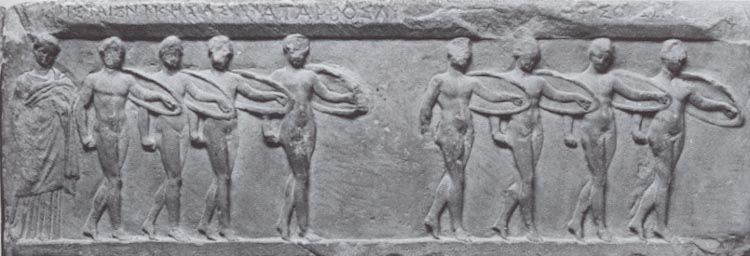
We talked about the Pyrrhic Dance in Nude Combat:

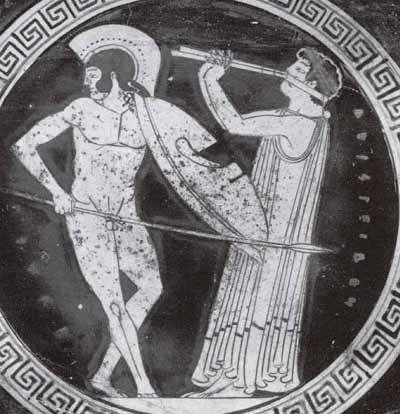
|
The Pyrrhic Dance -- most likely named for Achilles' son Pyrrhus ('Fiery Red') who later became Neoptolemus ('New War') -- was a series of stylized defensive and offensive movements performed to the accompaniment of a flute. (The flute was used in other military settings as well, such as to accompany hymns or paeans (songs of praise) before battle or to help keep hoplites in order during an advance.)
Similar techniques exist in contemporary martial arts. For example, those who've trained in karate will be familiar with "kata," a series of increasingly complex formal movements that have to be learned for the student to rise in rank.
Training such as this is thought to increase reaction time and of course the repertory of moves available to a fighter.
Notice that the warrior here once again carries the basic hoplite equipment of helmet, shield, spear, and greaves, and notice too the phallic position of his spear.
It's likely that the Pyrrhic Dance would have been presented at festivals, such as the Spartan Gymnopaediae, or Festival of the Naked Youths, sacred to Apollo, which included choral dancing.
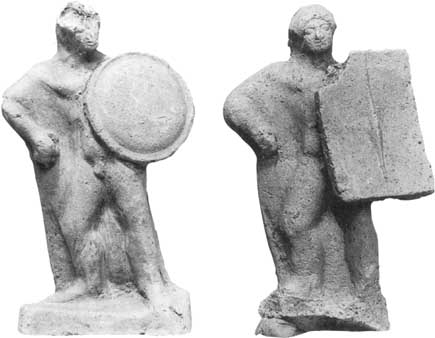
|
The Greeks were not alone in having this sort of exercise. These terra cotta figures, performing a similar sort of dance and dating from the 5th century BCE, are from a tribe called the Veii, an Italic people eventually absorbed by Rome.
And Tacitus speaks of a naked war dance among Teutonic tribal youth in the 1st century AD.
As in the first painting in The Warrior Bond, "Achilles and Patroclus," which has the appearance of a Japanese woodcut, it's interesting to see here an ancient Greek variant on a present-day east Asian martial art, another example of cultural convergence among warrior societies.
Let's go back to the Athenian relief:

This is Plato's description of the pyrrhiche from the Laws:
The warrior dance ... may be rightly termed Pyhhric; this imitates the modes of avoiding blows and missles by dropping or giving way, or springing aside, or rising up or falling down; also, the opposite postures which are those of action, as, for example, the imitation of archery and the hurling of javelins, and of all sorts of blows.
And when the imitation is of brave bodies and souls, and the action is direct and muscular, giving for the most part a straight movement to the limbs of the body -- that, I say, is the true sort ...
~ Laws, VII, 815a, translated by Jowett
Plato goes on to condemn other kinds of dancing, such as the Bacchic, which, he says, imitates drunkenness.
So -- there's a moral dimension to the Pyrrhic Dance.
And it's very important that you understand that.
The Gymnopaediae / Pyrrhiche was not about licentiousness.
It was rather, as Plato says, about "brave bodies and souls."
With an action which was both "direct and muscular."
As such, it was a demonstration of the martial prowess, both physical and spiritual, of the youth -- of the upcoming generation.
The next generation of citizen-soldiers.
And that's why it was so important.
And why it was done in the nude.
Because, again, the Spartans and other Greeks fought nude:
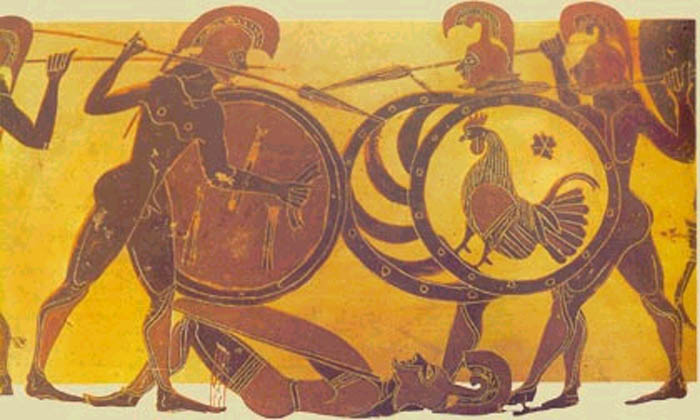
Sometimes they wore a corselet to protect the upper body:
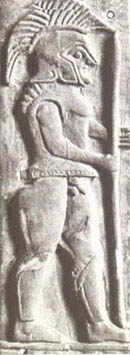 12345678910
12345678910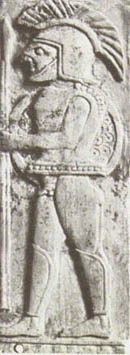
Spartan Hoplites
But the genitals were always displayed:
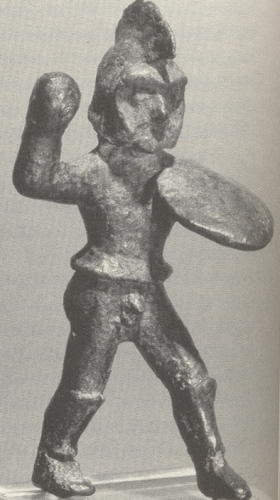
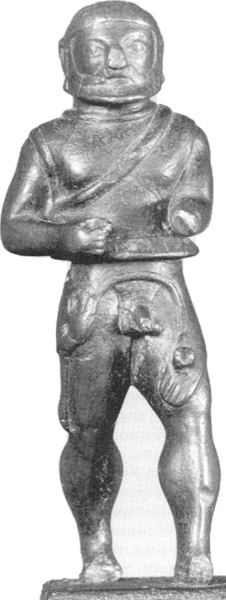
There's no escaping that.
Maleness -- Manliness -- was genital to them.
When they fought, they fought with their genitals displayed:

That's what the Agoge was about.
These nude and bloodied youths is what the Agoge was about.

And the Greeks saw great value in it.
Of course the Fighting didn't take place in a vacuum.
If the Fight Pits were at the center of the palaestra, then the exedrai -- the classrooms -- were all around them:
'In hand and foot and mind built foursquare without a flaw'
Jaeger:
The greatest work of art they had to create was Man. They were the first to recognize that education means deliberately moulding human character in accordance with an ideal. 'In hand and foot and mind built foursquare without a flaw' -- these are the words in which a Greek poet of the age of Marathon and Salamis describes the essence of that true virtue which is so hard to acquire.
"deliberately moulding human character in accordance with an ideal"
That's what the Spartans were doing.
"Moulding human character" in such a way that "true virtue" was acquired.
Remember that in that section from Plutarch describing the Agoge, he notes that not only was the boys' fighting spirit judged in physical fighting through they're being constantly spurred on "to fight and contend with each other";
but that their training in reasoning and morality mattered too.
That at the Men's Messes the Spartan boys were also drilled on questions such as
"Who among the men is the best?" or "What is your opinion of so-and-so's action?" Thereby boys grew accustomed to judging excellence and making a critical appraisal of the citizens right from the start. ... Answers had to be reasoned, supported by argument, and at the same time expressed with brevity and conciseness.
That training in morality and reason extended also to music and poetry, which were very much part of the Spartan way of life, and of their Spartan Warrior Way in particular.
Plutarch:
[The Spartans] were no less enthusiastic about training in lyric poetry and singing than they were about good style and purity in speech. Moreover, their songs offered stimulus to rouse the spirit and encouragement for energetic, effective action; in style they were plain and unpretentious, while their subject matter was serious and calculated to mould character. For the most part they were praises applauding the good fortune of those who had died for Sparta; condemnations of cowards whose lives were filled with grief and misery; and promises to be brave, or boasts about their bravery, depending upon the singers' ages. There is value in citing by way of illustration one example of the last type. At festivals three choirs would be formed corresponding to the three age groups. The choir of old men would sing first:We were once valiant young men. Next the choir of men in their prime would respond with the words:
But we are the valiant ones now; put us to the test, if you wish. Then the third choir, that of the boys, would sing:
But we shall be far mightier. Altogether, anyone who has studied Spartan poetry (some specimens of which have survived even to the present day), and has examined the marching rhythms which they used to an accompaniment of pipes when advancing upon the enemy, would not think both Terpander and Pindar wrong to connect both bravery and music. The former wrote as follows about the Spartans:
The spear-points of young men blossom there,
And justice is done in open air,
The help of gallant enterprise.Pindar says:
The councils of old men are pre-eminent there,
And the spears of young men,
And choirs and the Muse and Festivity.Thus the two poets portray the Spartans as being at one and the same time the most musical and most warlike of people: "Fine lyre-playing matches iron weaponry," as the Spartan poet [Alcman] has put it. In fact, at time of battle the king would first sacrifice to the Muses, thereby apparently reminding his men of their training and their trials, so that they should be ready to face the dangers ahead, and should perform memorable feats in the fighting.
Apparently singing also extended to the men's messes, because Alcman says
At feasts and in the companies
of the men's mess 'tis well beside them that sit at meat
to strike up and sing the Paean [a song of praise to a god, primarily Apollo]
So what we have is training in morality, training in judgement and reasoning, training in concision in speech and thought, and training in music and poetry, which is, we would say, very wholistic.
Because it occurs not just in formal settings like festivals but in particular at the men's messes, where the boys are expected to be able to speak well, to reason and defend their ideas, and to know and be able to sing the poetic and musical heritage of Sparta.
And please be clear that this too is part of the Agoge.
Part of the Spartan model.
It's not just kids running around naked and punching each other out.
It's an extremely organized and well-thought-through process of Molding Men, of Molding the Man.
A process that's life-long.
And that involves the mind.
Indeed, Plutarch notes that some people assert, and justifiably, "that devotion to the intellect is more characteristic of Spartans than physical exercise."
Whether you agree, what's clear is that both mind and body mattered to the Spartans.
As did the soul.
Plutarch says that the subject matter of their poetry and "was serious and calculated to mould character."
Right.
The Spartans were "deliberately moulding human character in accordance with an ideal"
That ideal being:
The end result being the perfect citizen.
The citizen-soldier.
The citizen-hero.
That's what the Greeks admired.
As do I.
This is an Athenian grave-marker or stele:
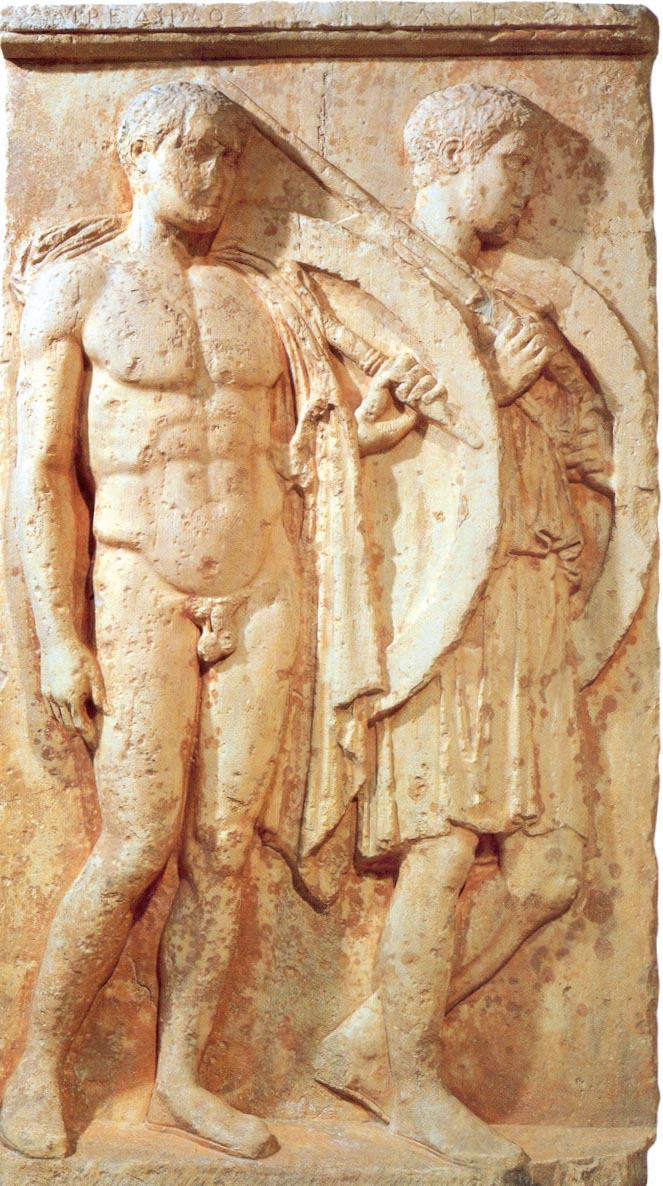
The City-State Remembers Its Own
Fallen Warrior Lovers
Remember what Tyrtaeus said of the fallen Warrior:
Never do his name and good fame perish, but even though he is beneath the earth he is immortal, whoever it is that furious Ares slays as he displays his prowess by standing fast and fighting for land and children.
During the Peloponnesian War -- a war between Athens and Sparta -- the Athenian leader Pericles delivered a famous funeral oration, in which he said,
So died these men as became Athenians. You, their survivors, must determine to have as unfaltering a resolution in the field, though you may pray that it may have a happier issue. And not contented with ideas derived only from words of the advantages which are bound up with the defence of your country, though these would furnish a valuable text to a speaker even before an audience so alive to them as the present, you must yourselves realize the power of Athens, and feed your eyes upon her from day to day, till love of her fills your hearts; and then, when all her greatness shall break upon you, you must reflect that it was by courage, sense of duty, and a keen feeling of honour in action that men were enabled to win all this, and that no personal failure in an enterprise could make them consent to deprive their country of their valour, but they laid it at her feet as the most glorious contribution that they could offer. For this offering of their lives made in common by them all they each of them individually received that renown which never grows old, and for a sepulchre, not so much that in which their bones have been deposited, but that noblest of shrines wherein their glory is laid up to be eternally remembered upon every occasion on which deed or story shall call for its commemoration.
For heroes have the whole earth for their tomb; and in lands far from their own, where the column with its epitaph declares it, there is enshrined in every breast a record unwritten with no tablet to preserve it, except that of the heart. These take as your model and, judging happiness to be the fruit of freedom and freedom of valour, never decline the dangers of war.
Those are Spartan ideas and ideals, first given voice by Tyrtaeus.
It's as Jaeger says:
The two types finally unite in the Athens of the fifth and fourth centuries. For in that period the political life of Athens was molded on the Ionian pattern, while the Spartan ideal was reborn in the realm of the intellect, through the aristocratic influence of Attic [Athenian] philosophy, and eventually, in Plato's cultural ideal, coalesced in a higher unity with the fundamental tenets of the Ionian and Attic constitutional state, stripped of its democratic form.
Sparta won the Peloponnesian War.
And in a sense Sparta won the war of ideas too.
Not that Athens didn't or doesn't matter.
It does -- a great deal.
But Sparta managed to keep her ideal alive -- just through the sheer power of the ideal.
Like Jaeger says, no philosophers, no historians, nothing.
Just the ideal.
AGOGE.
Frances has used the phrase "natural and organic."
What could have been more natural and organic to Men -- than the Agoge?
You've all read, in Frot Among the Animals, Bruce Bagemihl's description of male-male sex and male-male bonding among bottlenose dolphins:
Bottlenose dolphin (Tursiops truncatus)

Male Bottlenose Dolphins often form lifelong pair-bonds with each other. Adolescent and younger males typically live in all-male groups in which homosexual activity is common; within these groups, a male begins to develop a strong bond with a particular partner (usually of the same age) with whom he will spend the rest of his life. The two Dolphins become constant companions, often traveling widely; although sexual activity probably declines as they get older, it may continue to be a regular feature of such partnerships. Paired males sometimes take turns guarding or remaining vigilant while their partner rests. They also defend their mates against predators such as sharks and protect them while they are healing from wounds inflicted during predators' attacks. Sometimes three males form a tightly bonded trio. On the death of his partner, a male may spend a long time searching for a new male companion -- usually unsuccessfully, since most other males in the community are already paired and will not break their bonds. If, however, he can find another "widower" whose male partner has died, the two may become a couple...
The lives of male Bottlenose Dolphins are characterized by extensive bisexuality, combined with periods of exclusive homosexuality. As adolescents and young males, they have regular homosexual interactions in all-male groups, sometimes alternating with heterosexual activity. From age 10 onward, most male Dolphins form pair-bonds with another male, and because they do not usually father calves until they are 20-25 years old, this can be an extended period -- 10-15 years -- of principally same-sex interaction. Later, when they begin mating heterosexually, they still retain their primary male pair-bonds, and in some populations male pairs and trios cooperate in herding females or in interacting homosexually with Spotted Dolphins.
In my reply to that message thread, I said this:
This is what Bagemihl says about bottlenose dolphins:
The lives of male Bottlenose Dolphins are characterized by extensive bisexuality, combined with periods of exclusive homosexuality. As adolescents and young males, they have regular homosexual interactions in all-male groups, sometimes alternating with heterosexual activity. From age 10 onward, most male Dolphins form pair-bonds with another male, and because they do not usually father calves until they are 20-25 years old, this can be an extended period -- 10-15 years -- of principally same-sex interaction. Later, when they begin mating heterosexually, they still retain their primary male pair-bonds, and in some populations male pairs and trios cooperate in herding females or in interacting homosexually with Spotted Dolphins.
That's Sparta!
And who knows how many other ancient and traditional human cultures.
Bagemihl: "From age 10 onward, most male Dolphins form pair-bonds with another male"
According to Plutarch, Spartan boys formed pair-bonds around age 12.
Bagemihl: "and because they do not usually father calves until they are 20-25 years old, this can be an extended period -- 10-15 years -- of principally same-sex interaction."
Spartan men didn't marry till they were thirty.
So they had close to twenty years, in theory, "of principally same-sex interaction."
Bagemihl: "Later, when they begin mating heterosexually, they still retain their primary male pair-bonds"
So far as we know, that was true in Sparta too.
And their environment continued to be largely homosocial.
Every full-grown Spartan male was expected to belong to an all-male eating club or mess, where he took all his meals.
It was critical for him to remain a member in good standing of his mess.
It was a crucial affiliation.
If in some way and for some reason he fell out with his eating club, he was basically dead in society.
So, it's almost startling to read the Bagemihl -- because the parallels are so strong.
As species, after all, dolphins and humans are not closely related.
This would appear to be a case of parallel evolution.
And, I have to wonder how much of the dolphin behavior is learned.
Given their intelligence, presumably a lot of it is, in which case we have a parallel CULTURAL evolution between species.
But which MUST be biologically based.
Because left to their own devices, this is what HUMAN males do:
1. They form all-male -- homosocial -- groups; in which
2. They develop romantic attachments with each other.
Spartans / Dolphins
Dolphins / Spartans
Come to your senses guys.
When I say Come to your senses -- I mean it.
The way you're living now is NOT natural; and it's NOT organic.
It's a big, fucked-up, heterosexualized mess.
With one disaster -- from AIDS to Global Warming -- following another.
While you spend your lives in loneliness and despair.
Let's get back to the animals for a moment.
A few weeks back I happened to come across an article on yahoo titled "Same Sex Couples Common in the Wild."
Unfortunately, the article has since been scrubbed -- which is often the case with yahoo articles, which have a very short shelf-life.
But the article was simply a response to the California same-sex marriage decision, and it said what we already know thanks to Bagemihl and other scientists: that same-sex affection, intimacy, Love, and sex are common among non-human animals.
Attached to the article was a sort of featurette from LiveScience titled
Gay Animals: Alternate Lifestyles in the Wild
Obviously not a great piece -- just for starters, the animals aren't "gay," of course, nor are they involved in a lifestyle, be it alternate or otherwise.
They're just doing what they do.
And what they do is hang out in homosocial -- same-sex -- groups, where their behavior is homophilic and homoerotic.
Affectionate, intimate, sexual, and Loving.
Which the LiveScience feature, as silly as its title is, confirms.
Indeed, both articles point out that same-sex erotic behavior is VERY common among animals.
With some illuminative tit-bits.
For example, about walruses:
Male walruses don't reach sexual maturity until they are four years old. During that time, they are most likely exclusively involved in same-sex relationships. The older males are typically bi-sexual, mating with females during breeding season and copulating with other males the rest of the year. Males rub their bodies together, embrace each other and even sleep together in water.
And about American bison:
Homosexual mounting between males tends to be more common than heterosexual female-male copulation among American bison, especially because females only mate with the bulls about once a year. During mating season, males engage in same-sex activities several times a day. More than 55 percent of mounting in young males is with the same gender.
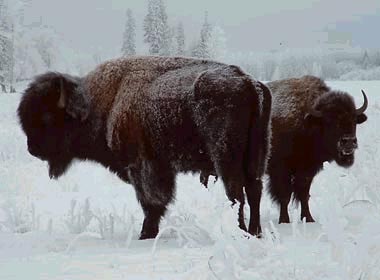
"Homosexual mounting between males [is] more common than heterosexual female-male [sic] copulation..."
That's also true, the article says, of giraffes.
I suspect that it's true of many if not ALL mammalian species, since most of those species are, like I say, homosocial -- the males hang out with the males, the females with the females, and the two sexes only come together briefly -- to mate.
The article says that the bison "mount" each other.
Does that mean they're anally penetrating each other?
No.
When a male bison mounts another male bison, he's doing it for the same reason that a male dog mounts your leg:
Genital and body rubbing.
Frottage.
The dog rubs his chest and genitals against your leg.
The bison is rubbing his genitals and body against the body of the other bison.
Females mount other females too.
But what we can see is that when mammals are able to directly rub cocks, they do: dolphins, manatees, walrus, bonobos -- and whales:
Splashing around in the water is brought to a completely new level in gray whales, where homosexual interactions are quite common. In slip-and-slide orgies, as many as five males roll around, splashing water, and rubbing their bellies against each other so that their genitals are touching.
"rubbing their bellies against each other so that their genitals are touching"
"rubbing ... so that their genitals are touching."
There's an easier way to say that:
And for those of you who are Creationists, here's the good news:
God made it possible for you to do that too.
Your Masculinity is a Divine Principle, your Manhood a Divine Gift.
And you're so constructed that you can readily and easily pit your Manhood against that of another Man.
And thus meld and merge your Manhood with that of another Man.
Through Phallic Battle to Phallic Bond -- the Holy Sacrament of Frot.
No greater gift than that.
Now, in the yahoo article, an animal behaviorist pointed out that this information about animals was for many years suppressed.
And that's absolutely true, and an outrage.
Throughout the 50s, 60s, 70s, 80s, and into the 1990s, we were told that "homosexuality" was a uniquely human aberration -- that it didn't exist in nature.
What's infuriating about that is that not only is it not true, but that the people saying it knew, in many cases, that it wasn't true.
They were animal behaviorists who concealed the truth about same-sex behavior among animals in order to avoid being labeled "gay" or otherwise hurting their careers.
Now, says one researcher quoted by the article,
"The funny thing is that people say homosexuality is unnatural, that non-humans don't engage in homosexual behavior, but that's not true. Then they'll say it's base and animalistic."
She's right.
That's what the religious right and their cultural right allies will and do say.
What would have happened if you'd told Alcon, our Spartan Warrior, that his love for Sebros was unnatural, base, or animalistic?
He would have skewered you with his spear and/or tossed your beaten body into that almost bottomless pit that the Spartans kept handy for dealing with people they didn't like.
But most of you, I know, reading this, if told that your perfectly normal and natural male-male needs and desires are unnatural, base, and animalistic -- will do -- nothing.
You'll take it.
Passively.
Like repeatedly getting hit in the face.
You'll just put up with it and internalize it.
STOP DOING THAT.
FIGHT BACK.
Jaeger says that "[T]he ideal which inspired [Sparta's] citizens, and towards which, with iron consistency, every effort of every Spartan was directed, is imperishable because it is an expression of a fundamental human instinct."
That's right -- a fundamental human instinct.
And he says that "every effort of every Spartan was directed" towards it with "iron consistency."
That's what YOU need -- iron consistency -- and that's what you lack.
Instead, you let yourselves be seduced by the fleshpots -- whatever they may be, from cable TV to gay hook-up sites -- and your life passes away before your eyes.
It's interesting in that regard that the Spartans believed that Lycurgus, whose good rule was after all endorsed by Apollo, taught that they should deny themselves any and every sort of luxury.
And that even the possession of gold or silver was banned.
I'm sure most of you've read about the polygamist compound which was raided in Texas.
Here's an account from another one of those scrubbed yahoo stories -- the link probably won't work -- but the account is from the AP back in April:
ELDORADO, Texas - The guy didn't look much like a hunter. He was beanpole tall - scarecrow-ish, some might say, with a high, collegiate forehead and a reluctant handshake. Even in a pearl-snap shirt and jeans, this cowboy somehow seemed better suited for a college lecture hall than a saddle.
Still, he wanted land - lots of it - for a corporate hunting retreat. Said he might build a lodge, to entice some big-roller clients of his in Vegas. North of town, the old Isaacs ranch - rocky and dotted as it was with rusty oil rigs, cactus and gnarled mesquite trees - caught his eye. It was plenty cheap, he said, and plenty remote.
But it didn't take long for the sheriff and everyone else in Schleicher County to figure out that their new neighbor, David S. Allred, president of YFZ Land, LLC, had much more on his mind than the hunting of whitetail.
After the closing in November 2003, dozens of Allred's associates arrived to make improvements on the property. Sunday to Sunday, day and night they toiled, completing three, three-story houses - each 10,000 square feet - within weeks. Soon, a cement plant shot up. Then fields of limestone were miraculously plowed into fertile farmland. And then, a superstructure unseen in these parts - a temple, masterfully clad with limestone quarried onsite - ascended into the west Texas sky.
And that, as it happened, was only the beginning.
The YFZ Ranch - which, as the townspeople would come to learn, stood for Yearning for Zion - would mushroom into a bustling, parallel city: a 1,691-acre, self-sustaining enclave carved, literally, into a rock pile for the innermost circle of the Fundamentalist Church of Jesus Christ of Latter Day Saints, FLDS, a 10,000-member sect that has continued to practice polygamy after it was banned by the Mormon Church in 1890.
Here, there would be enormous dormitories for enormous families, a cheese factory, a medical clinic, a grain silo, a commissary, a sewage treatment plant - and watchtowers with sentries, infrared night-vision cameras to monitor gated entrances, and 10-foot-high compound walls topped with spikes.
...
You know guys, you may not like anything about the FLDS and their YFZ ranch -- but you have to admire their organization and their industry.
What you might even call their iron consistency.
What's more, most of what they did, they did very quickly.
They even trucked in their own topsoil so they could grow their own food.
Impressive.
Maybe the FLDS are guilty of everything they've been accused of.
I don't know.
I do know that this is what the leader of the group has been jailed for:
Jeffs, who is revered as a prophet, is serving a prison sentence for a Utah conviction of being accomplice to rape in the marriage of a 14-year-old girl to a 19-year-old sect member. He awaits trial in Arizona on similar charges.
"Accomplice to rape."
You know, in most places in the world, a 19-year-old male marrying a 14-year-old female is not rape.
It wasn't rape in Texas either until the legislature learned about YFZ and raised the age of consent to 16.
Which didn't seem quite fair to me, given that FLDS had bought the property and put so much energy into the ranch -- when the age of consent in TX was 14.
Be all that as it may --
These people bought a piece of land which was basically worthless --
and accomplished a lot with it.
There've been questions raised about their source of funds.
But I don't think it's mysterious.
If you have a group of people who are willing to live communally, and are willing to donate their incomes, plus their sweat, to the commune -- you can raise a lot of money and do a lot with it -- fairly quickly.
That's what the Greek city-states were -- they were communal exercises.
The spirit motivating those states was very different, on the face of it at least, from FLDS.
But understand this.
The folks in FLDS regard polygamy as a spiritual practice, which will bring them glory in heaven.
The ancient Greeks too were, in a sense, religiously motivated.
Like I said, Lycurgus, the Spartans believed, had received the blessing of Apollo at Delphi.
But Greek religion was MAN-centered.
Man was the measure.
And in such a spiritual system, the True Love of Man for Man was celebrated.
Indeed, the True Love of God for Man was celebrated -- in the festival called the Hyacinthia, which was about Apollo's Love for the Spartan prince Hyacinthos.
And about Hyacinthos' devotion to the God.
Pausanias has a long description of the Hyacinthian altar of Apollo at Spartan Amyclae; into which he says that Hyacinth's tomb was incorporated.
Apollo was the Dorian God of Reason and Light.
Here's the 19th-century aesthete Walter Pater on Greek religion:
The wilder people have wilder gods, which, however, in Athens, or Corinth, or Lacedaemon [Sparta], changing ever with the worshippers in whom they live and move and have their being, borrow something of the lordliness and distinction of human nature there. ... The supreme Hellenic culture is a sharp edge of light ... . The fiery, stupefying wine becomes in a happier region clear and exhilarating. The Dorian worship of Apollo, rational, chastened, debonair, with his unbroken daylight, always opposed to the sad Chthonian divinities, is the aspiring element, by force and spring of which Greek religion sublimes itself. Out of Greek religion, under happy conditions, arises Greek art, to minister to human culture. It was the privilege of Greek religion to be able to transform itself into an artistic ideal.
I know that Pater can be tedious.
But when he speaks of Apollo as "rational, chastened, debonair, with his unbroken daylight" -- he's correct.
You'll notice he uses the word "chastened."
Pater also speaks of "the severe and chastened grace of the palaestra."
And he's right about that too.
There's a relationship between the "rational, chastened, debonair" Apollo -- and "the severe and chastened grace of the palaestra."
"rational, chastened, debonair" -- "with unbroken daylight"
These are not traits we ordinarily associate with the Spartans.
But maybe we should.
Yes, even debonair -- read Plutarch's Sayings of the Spartans -- there are some in the 300 message thread.
Because when it came to accomodating the needs of both Men and Women -- the Spartan system was eminently reasonable and rational.
And YOU could have something like that -- that is to say, something like Sparta and the Agoge in your own life.
If you were willing to work for it.
Frances has spoken in favor of that.
Frances is a Woman.
Why would she support a New Sparta?
Well, maybe Pausanias gives us a clue.
His description of Plane-tree Grove, and its Fighting of the Youths, ends with this line:
Man to man they fight in the way I have described, but in the mellay they charge violently and push one another into the water.
You can look up it for yourself: that's Pausanias Book III, chapter XIV.
The very next sentence begins Chapter XV, and here's what it says:
XV. At Plane-tree Grove there is also a hero-shrine [hero-on] of Kyniska, daughter of Archidamus, king of the Spartans. She was the first woman to breed horses, and the first to win a chariot race at Olympia. Behind the portico built by the side of Plane-tree Grove are other hero-shrines, of Alkimos, of Enaraiphoros, at a little distance away one of Dorkeos, and close to it one of Sebros.
So: Kyniska, a WOMAN, has her own hero-shrine sitting, it would appear, right next to Plane-tree Grove, right next to this sacred grove where takes place The Fighting of the Youths, along with the shrines of a number of male heroes: Alkimos, Enaraiphoros, Dorkeos, and Sebros.
Interesting.
What it tells us is what we've always heard.
That the status of Women at Sparta was high.
That Women had a lot of freedom.
And apparently control.
We know that women were encouraged to be athletic.
That they too exercised in the nude.
That the Ionian Greeks, whose thinking about women was said to me more "Asiatic" -- women were to be controlled and by and large limited to the house -- that the Ionian Greeks accused the Dorian Greek women of being sexually loose.
Well, if there's any truth to that, they would have been sexual with each other.
As well as their husbands.
And, according to Xenophon, with those men with whom they wanted to have children.
Plutarch confirms all that -- he says that "respectable women would in fact have love-affairs with unmarried girls"; and he describes how women would mate with a man outside of her marriage, the goal being to bear a worthy child.
Women had a large degree of freedom -- sexual and otherwise.
Kyniska was so good at horse-breeding that she got her own hero-shrine.
That's a very great honor.
Now, just let me be clear -- Pausanias says she was "the first to win a chariot race at Olympia."
That means her team of horses won.
It doesn't necessarily mean that she was the charioteer.
But the winner at Olympia was Kyniska of Sparta because it was her team, which she'd bred and presumably had a hand in training, which won.
And the Spartans thought that her achievement was significant enough -- that it deserved a hero-shrine.
Remember that in the ancient world, heroes were for emulating.
They were models upon which any and every individual might base his or her life.
So just as the Spartan boys would have had Achilles -- who had begun his life as a hero and was now a god -- as a model; so the girls would have had Kyniska -- and presumably other Women -- as models.
What begins to emerge is a picture of a society which was by and large homosocial -- Men had their Space, Women had theirs.
Men and Women came together to breed -- to make children -- just as do dolphins and walrus and bison and giraffes and most other mammals, which by and large are homosocial too.
Again, at Sparta, Men and Women came together to breed -- to make children.
Much of the rest of the time, their lives were separate.
The Men, we're told, spent their time in training for war, in hunting, and in eating with and otherwise hanging out with the other Men.
The Women supervised the farms, and raised the children.
Except that the boys were taken into all-male groups at age seven.
Which means that the girls would have de facto been in all-female groups much of the time.
That's Sparta.
Sparta was very successful.
It was around for a long time.
Were the Spartans happy?
I don't know, but here's a clue.
The Spartans were secretive, which is one reason there are so many gaps in our knowledge of them.
But the other reason is that the Spartans were secretive, and no one broke the code.
In other words, no one talked.
If Sparta had been an unhappy place, people would have defected to other city-states and told tales of how miserable life was in Sparta.
That didn't happen.
Why not?
Plutarch:
Spartiates' training extended into adulthood, for no one was permitted to live as he pleased. Instead, just as in a [miltary] camp [while at war], so in the city they followed a prescribed lifestyle and devoted themselves to communal concerns. They viewed themselves absolutely as part of their country, rather than as individuals, and so unless assigned a particular job they would always be observing the boys and giving them some useful piece of instruction, or learning themselves from the elders. Abundant leisure was unquestionably among the wonderful benefits which Lycurgus had conferred upon his fellow citizens. While he totally banned their involvement in any manual craft, there was equally no need for them to amass wealth (with all the work and concentration which that entails), since riches were emphatically neither envied nor esteemed. ... As might be expected, legal disputes disappeared along with coinage, since there was no longer greed or want among them, but instead equal enjoyment of plenty, and the sense of ease which comes from simple living. Except when they went on campaign, all their time was taken up by choral dances, festivals, feasts, hunting expeditions, physical exercise and conversation.
No wonder people didn't want to leave.
Now, I know that someone will say to me, Yeah, but the system was built on slavery.
That's true.
ALL the Greeks, including the Athenians -- who were among the most brutal -- used slaves.
Why?
Because to them slavery was "natural" -- they believed it was natural for the strong to enslave the weak -- and because they couldn't have had a civilization without slaves.
Still -- and no question -- slavery is morally heinous.
What about us?
Do we use slaves?
Well, this quote from a "peak oil" site, which used to be fringe and has now become very mainstream, says that oil has given us "ghost slaves":
Agriculture and Slavery
In discussing these issues [of agriculture, oil, and peak oil] with a statistics professor friend of mine, he made a comment that made me think. I had told him my favorite statistic (Price 1995)
"Today, the extrasomatic energy used by people around the world is equal to the work of some 280 billion men. It is as if every man, woman, and child in the world had 50 slaves. In a technological society such as the United States, every person has more than 200 such 'ghost slaves.' "
I also told him that the energy in one gallon of gasoline represents the physical labor of one human for 3 weeks. After hearing this, my friend then asked me if the modern world doesn't have slavery because of cheap energy. I must admit that was something I wish I had thought of. Slavery still exists in the world, but it exists in the poorer parts of the world. Looking at the calculation about planting corn above, one can understand the need for cheap labor, whether that labor is one's children or property. I must make it clear that I think this is absolutely horrible, but every society in the past was a slave-holding society. If we lose our energy and have to live the life they lived, are we naive enough to think our descendants will avoid the mistakes they made?
...
References:
David Price, "Energy and Human Evolution", Population and Environment, Volume 16, Number 4, March 1995, pp. 301-19
So: The Spartan use of slaves was heinous.
But in our eagerness to obtain and maintain a high standard of living, a standard of living which requires each of us to have more than 200 "ghost slaves" a piece, we've de facto destroyed the planet.
And I mean destroyed.
I live in a part of California that's been heavily impacted by the more than 1000 wildfires burning as a result of global warming.
It's no joke.
The damage is incredible -- and the air quality terrible.
Those fires were created by a storm which showed up unexpectedly from the west -- most such storms in California come out of the southeast -- and hit the state with more than 8000 lightning strikes.
That's a very high number.
That's why there were so many fires.
And we're just at the start of this process.
Lots more to come.
In the meantime, despite our unthinking exploitation of the oil and mineral wealth of the planet, we do NOT live anywhere near as well as did the Spartans, who had
equal enjoyment of plenty, and the sense of ease which comes from simple living. Except when they went on campaign, all their time was taken up by choral dances, festivals, feasts, hunting expeditions, physical exercise and conversation.
"all their time was taken up by choral dances, festivals, feasts, hunting expeditions, physical exercise and conversation"
Most Americans are wage-slaves in one form or another.
Yes, we have the freedom to change jobs -- sometimes; and we have a lot of things -- a lot of possessions -- but we're in thrall to them.
Aside from the increasingly small group who manage to amass vast wealth and can stop working, most Americans have to work forever to maintain their "lifestyle."
And more and more, that includes working past "retirement."
If an American stops or is forced to stop working, chances are in many cases that he or she will end up homeless.
That's the system.
Please do let me know, if you're able, how the Spartan system was inferior to ours.
Cause I don't think it was.
Fact is that each full-blooded Spartan was given a plot of land -- a "kleros" -- at birth.
This land was, in theory, enough to sustain him.
And his family?
We don't know.
But the kleros constituted a sort of guaranteed annual income.
And provided the Spartan made sure that his kleros produced enough food for him to meet his obligation to his mess -- he was set for life.
Leading me to repeat that the Spartan system was in no way inferior to ours.
Nor was their impact anywhere near as destructive as ours has been.
(Readers who are interested in a very technical discussion of an alternative to our very commodity-centered society might enjoy this article by philosopher Andre Gorz, which also includes links to his obituary and his charming "Letter to D.," his wife of 60 years.)
So -- the Spartans had a good life.
Which is why people tended to stay in Sparta -- and enjoy feasts, festivals, choral singing, exercise, and good conversation.
And why Spartans themselves didn't bad-mouth Sparta.
In the one really famous case of a defector -- the Spartan king Demaratus, who was deposed and who defected to the Persians -- the only things he told the Persians were basically, not to go up against the Spartans, because they were invincible.
And that the Spartans were far more moral than the Persians.
For example, when asked by Xerxes, the Persian Great King and King of Kings, whether the Greeks would fight against him, Demaratus responded,
Want has at all times been been a fellow-dweller with us in our land, while Valour is an ally whom we have gained by dint of wisdom and strict laws. Her aid enables us to drive out want and escape thralldom. Brave are all the Greeks who dwell in any Dorian land, but what I am about to say does not concern all, but only the Lacedaimonians [Spartans].
First then, come what may, they will never accept thy terms, which would reduce Greece to slavery; and further, they are sure to join battle with thee, though all the rest of the Greeks should submit to thy will. As for their numbers, do not ask how many they are, that their resistance should be a possible thing. For if a thousand of them should take the field, they will meet thee in battle, and so will any number, be it is less than this, or be it more.
Xerxes laughed and pointed out how greatly the Persians outnumbered the Greeks, and the Spartans.
Demaratus answered him:
I knew, O king, at the outset, that if I told thee the truth, my speech would displease thine ears. But as thou did require me to answer with all possible truthfulness, I informed thee what the Spartans will do. And in this I spake not from any love that I bear them -- for none knows better than thou what my love towards them is likely to be at the present time, when they have robbed me of my rank and of my ancestral honours, and made me a homeless exile.... For my own self, I pretend not to cope with ten men or even two [in a fight] -- nay, had I the the choice, I would rather not fight even with one. But, if need appeared, or if there were any great cause urging me on, I would contend with right good will against any of those persons who boast themselves a match for any three Greeks.
So likewise the Lacedaimonians. when they fight singly, are as good men as any in the world, and when they fight in a body, are the bravest of all. For though they be freemen, they are not in all respects free; Law is the master whom they own; and this master they fear more than thy subjects fear thee. Whatever he commands, they do. And his commandment is always the same: It forbids them to flee in battle, whatever the number of their foes, and requires them to stand firm and either to conquer or die.
~ Herodotus, Bk VII, translated by Rawlinson.
We also hear from Demaratus in Plutarch:
Demaratus, former Spartan king who was an exile in Xerxes' court:
When someone asked why he, a king, was an exile from Sparta, he replied, "Because her laws are more powerful than I am."
When one of the Persians by persistent bribery had lured away the person Demaratus was in love with and was saying, "Spartan, I have hunted down your beloved," Demaratus replied, "By the gods, it's not you, it's the fact that you have bought him."
~ Plutarch, Sayings of the Spartans
So the picture we get from this Spartan exile is NOT contempt for Sparta, but rather great respect -- and contempt for everyone else.
And what Demaratus told Xerxes was true:
You could kill Spartans -- but you couldn't conquer them.
Something to consider.
"Iron consistency" -- that too is something to consider.
An "iron consistency" brought to the molding of men.
The Greeks, said Hegel,"are great and free, and have grown up on the soil of their own individuality, creating themselves out of themselves, and moulding themselves to what they were, and willed to be. ... They are ideal artists of themselves, cast each in one flawless mould, works of art, which stand before us as an immortal presentment of the gods."
The Greeks willed themselves to be -- "creating themselves out of themselves, and moulding themselves to what they were, and willed to be";
they are thus "ideal artists of themselves, cast each in one flawless mould, works of art, an immortal presentment of the gods."
The Molding of Men leads to an immortal presentment of the Gods.
Men, Gods, and Heroes.
Let's look one more time at the Fighting of the Youths -- that Nude Combat in Plane-tree Grove.
We saw that before fighting, the youths sacrificed to both Ares and Achilles.
Ares, the God of War, as you know from reading Excellence, Honor, and the Molding of Men, is also the root and source of Areté -- Excellence:
From the same root [ARES] comes areté [excellence] ...the first notion of goodness being that of manhood, bravery in war; cf. Lat. virtus.
While Achilles, we learned also in Excellence, was the paradeigma, the example for imitation -- the model -- for all Greek Men.
Before going into the Fight, the boys acknowledged Ares -- the God of War;
and Achilles -- the God of Men.
You need to do the same.
To find and acknowledge in your own lives, both the God of War; and the God of Men.
Maybe for you -- he's the same God.
To the philosophers, the many gods of the ancient world were all manifestations of the one God.
Be that as it may, both Ares and Achilles, like Herakles too, were Gods of the Fight.
Fight Gods.
Warrior Gods.
They were also Gods of male-male love.
Yes, even Herakles, who loved Iolaos.
And yes, even Ares.
But Bill, you may say to me, in the mythology which has survived, Ares, unlike Zeus and Poseidon and Apollo, doesn't have a male lover.
Which is true -- in the literature which survives.
An enormous amount -- including most of the poetry and much of the myth -- has been lost.
Yet, even with what little we have, there is a connection.
First of all, in some tellings, Ares and Aphrodite have two children -- Harmonia, and Eros -- the pre-eminent god of male-male love.
Love and War unite to produce -- Harmony -- within the state -- and Love -- between Warriors.
The myth simply confirms what any soldier knows -- look at Douglas Allanbrook for example.
And there's more.
Here's the Oxford Classical Dictionary:
Temples [to Ares] are known chiefly from Crete (Cnossus, Lato, Biannos, perhaps Olus) and the Peloponnese (Argos, Troizen, Megalopolis, Therapne [a sort of suburb of Sparta], Geronthrai, Tegea), but also from Athens and Erythrae. Cretan towns offer sacrifices to Ares and Aphrodite, who appear in interstatal and ephebic oaths; their combination seems to be typical for Archaic bands of warriors (see Plutarch, Pelopidas 19, who associates them with the homosexual bond among young warriors.)
Key points:
- Temples to Ares are found primarily in Dorian areas, the old Warrior Greek areas -- the Peloponnese -- which includes Sparta -- and Crete;
- Ares, the god of War, and Aphrodite, the goddess of Love, appear in "ephebic" oaths -- ephebes were, basically, teenagers who were also warriors-in-training -- and when Pausanias speaks of "the fighting of the youths," the word he uses for "youths" is "ephebon" -- "ten machen ton ephebon" -- the fighting of the youths;
- The combination of Ares and Aphrodite in such oaths is "typical for Archaic [776 - 480 BC] bands of warriors"; and
- Such ephebic oaths are associated with "the homosexual bond among young warriors."
So -- in Ephebic, that is, Youthful Warrior, oaths, Ares is called upon to solemnize and thus strenghten the erotic bonds between Warriors.
And the most important example of that bond in Greek literature is in the Iliad -- the bond between Achilles and Patroklos.
Ares and Achilles.
Fight Gods, Warrior Gods, Gods of Manly Love.
Anyone who admires the Greeks -- who were, after all, the founders of Western civilization and thus the founders of the modern world -- has to come to terms with that.
Plato was the greatest philosopher of the ancient world -- arguably the greatest philosopher the world has ever known.
Plato's ideal was the Spartan ideal.
Athens was the leading intellectual city of the ancient world.
But the Athenian ideal of valor was, as we saw, the Spartan ideal.
Those are truths.
Truths you'd do well to acknowledge.
Truths you'd do well to ponder.
Sparta was, ideally, a Nation of Heroes.
You could live in such a Nation.
If you had the will.
Jaeger:
The early Greek city-state was small, but it had something truly heroic and truly human in its nature. Greece, and in fact all the ancient world, held the hero to be the highest type of humanity.
"truly heroic and truly human"
Wouldn't you like to live that way?
And couldn't you?
If you tried.
"Greece, and in fact all the ancient world, held the hero to be the highest type of humanity."
Do you?
The Spartans held the hero to be the highest type of humanity.
Do you?
If you scroll to the end of this page you'll find a little photo essay titled The Fighting of the Youths.
The Fighters pictured are contemporary MMA Fighters.
And they exhibit what we've called before a Brave Beauty.
Which is the only True Beauty.
But they're not Spartans.
Not yet.
The Spartans held the Hero to be the highest type of humanity.
Do you?
And if so, do you want to be part of that humanity?
It's a matter of what you want --
and what you're willing to WORK for.
I'm posting this on the Fifth of July -- just one day past Independence Day.
Sparta had a great influence on our American Founding Fathers.
It was, according to classicist W G Forrest, the first constitutional state in ancient Greece.
It had an Assembly -- made up of all the Spartiates -- the full-blooded citizen-soldiers of Sparta;
a Council of Elders -- which corresponded roughly to our Senate;
two kings -- who were basically war leaders -- like our Commander-in-Chief; and
five elected ephors, who seemed to have been a combination of administrator/executive and judge -- they had the power to call the kings to account -- which is very unusual prior to late 18th century England.
But this was in 7th century BC Greece.
The Spartans didn't achieve that state without a struggle.
And they didn't sustain it without constant vigilance.
Iron consistency.
Jaeger speaks of "self-sacrifice and patriotism."
And of standards imposed on "every citizen's thoughts and actions ...[which] were the foundation of the whole Spartan cosmos."
The Spartan Cosmos.
The Spartan Ideal.
It can be your Ideal -- and your Reality.
If you will work to have it.
I said of the MMA fighters that they aren't Spartans.
They aren't.
It's not just that they don't train and fight nude -- though that matters;
or that they don't worship Apollo and Ares and Achilles -- though that matters too;
or that they cannot openly and honestly acknowledge same-sex love in their lives -- if they have that.
It's that they haven't been through the Agoge, those fourteen years of training not just in fighting but in reasoning and morality -- what Plutarch calls the judging of excellence -- those fourteen years of communal exercise both physical and intellectual that made of the Lakonian youth and their Sparta a great nation.
A Nation of Heroes.
These Men are not yet that.
They could be.
And you could be too.
It's a matter of what you're willing to work to have.
Tyrtaeus speaks of the Spartan Warrior's "spear's splendid boast."
What's your spear's splendid boast?
That you're good at jerking off?
Or expert at edging?
That you can cum 10 inches in the air?
Get real.
You're a slave.
Even if you're independently wealthy, you're still a slave to heterosexualization and the innumberable lies told about Men.
You don't live free.
And neither does your spear.
Looked at objectively, your situation is at least as bad as, and probably worse, than that of any Spartan slave.
Because in certain very basic ways, you're not free to be a human being.
And certainly not a Man.
You're enslaved by what NW rightly calls our American forced heterosexualized society -- and in thrall to commodities and consumerism.
To things.
Question: does living the heterosexualized lie help you in any way whatsoever?
And what do all your things do for -- and to -- your spirit?
When you die will your things mourn you?
Or keep alive the memory of your name?
Will they miss you?
Will they care?
The Spartan way of life was moderate; and by denying themselves, they gave themselves freedom.
Critias, who, like Xenophon, was an Athenian, remarked that
For toasts from cups that go beyond due measure, though they give momentary pleasure, bring grief for all time. But the Spartan way of life is evenly ordered: to eat and drink moderately so as to be able to think and work. There is no day set apart to intoxicate the body with immoderate drinking [such as there was in Athens].
...
It was Chilon, the Spartan sage, who said this: "Nothing in excess, to due measure belongs everything that is good."
"to due measure belongs everything that is good"
Remember Biton and Kleobis, the Argive Warriors -- Argos too was in the Peloponnese -- who were the happiest of mortals, in part because they had enough for their wants -- enough, but not more than enough?
Looking at these images, would you not agree with Plutarch that there's much to be said for
The Spartan's life was not taken up by the quest to make more money with which to buy more things.
No.
"Except when they went on campaign, all their time was taken up by choral dances, festivals, feasts, hunting expeditions, physical exercise and conversation."
And when they went "on campaign" -- to war -- they did so to remain free.
And to help others to remain free.
Plutarch says that before Sparta was corrupted by an influx of gold and silver just after the Pelopopennesian War,
It also demonstrates where George Lucas got the idea for the Jedi.
And why the idea of the Jedi has so much resonance even in today's soulless world.
...
All the same, it was not Lycurgus' main aim at the time to leave his city as leader of so many other cities. Instead his view was that happiness in the life of a whole city, as in that of one individual, derives from its merits and from its internal concord: it was to this end that all his arrangements and his structures were combined, so that Spartans should be free and self-sufficient, and should have the good sense to continue thus for a very long time. This theory of government was adopted by Plato, Diogenes, Zeno and all those who are praised for their attempts to make some statement about these matters, even though they left only paper theories. Lycurgus on the other hand brought into the light of day, not paper theories, but a functioning constitution which is quite unmatched. To those who suspect that it is impracticable for a theroretical structure to be centered upon a Sage, he has exhibited his whole city practising philosophy, and has deservedly won greater renown than all those who have ever governed so far among the Greeks.
It is for this reason that Aristotle claims the honors granted Lycurgus at Sparta to be slighter than he merits, even though they are the highest ones. For he has a temple, and sacrifices are made to him every year as if to a god.
So: the aim of Lycurgus and those others who may have designed the Spartan system was that "Spartans should be free and self-sufficient, and should have the good sense to continue thus for a very long time."
The goal is visionary.
Lycurgus and his fellow Spartans were visionaries -- who set out to build an ideal society, both free and self-sufficient.
Does that remind you of anyone?
When our American Founding Fathers got tired of being kicked around the kitchen by the British Crown, they pledged their Lives, their Fortunes, and their Sacred Honor to the revolution.
If they'd failed in that endeavor, they would have been hung -- at the least -- as traitors.
That didn't faze them.
Their goal, ultimately, was not just independence, but to devise a system such that Americans, like Spartans, "... should be free and self-sufficient, and should have the good sense to continue thus for a very long time."
America, like Sparta, was both an idea and an ideal.
And our American founding fathers, like the Spartans, vowed to Live Free -- or Die.
Whether you understand it or not, the same choice faces YOU today.
Live Free or Die.
What will you choose?
You, like all Men, have but one sweet, precious life.
The Spartans understood that.
What will you choose?
Jaeger:
The early Greek city-state was small, but it had something truly heroic and truly human in its nature. Greece, and in fact all the ancient world, held the hero to be the highest type of humanity.
"truly heroic and truly human"
Wouldn't you like to live that way?
And couldn't you?
If you tried.
"Greece, and in fact all the ancient world, held the hero to be the highest type of humanity."
Do you?
The Spartans held the Hero to be the highest type of humanity.
Do you?
If you do, are you willing to act Heroically?
Are you willing to become the Hero of your own Life?
That's the task and challenge which faces every Man.
Will you meet it?
Or will you remain a slave?
Forever.
Bill Weintraub
July 5, 2008
© All material Copyright 2008 by Bill Weintraub. All rights reserved.
AND
Warriors Speak is presented by The Man2Man Alliance, an organization of men into
Frot
To learn more about Frot, ck out What's Hot About Frot
Or visit our FAQs page.
© All material on this site Copyright 2001 - 2010 by Bill Weintraub. All rights reserved.
Spartan youths drink only enough to turn their mind to cheerful [thoughts], their tongue to friendliness and moderate laughter. Such drinking is beneficial for body, mind, and property. It is well suited to the deeds of Aphrodite and to sleep, a haven from toils, and to Health, most pleasing of the gods to mortals, and to Discretion, the neighbor of Piety.
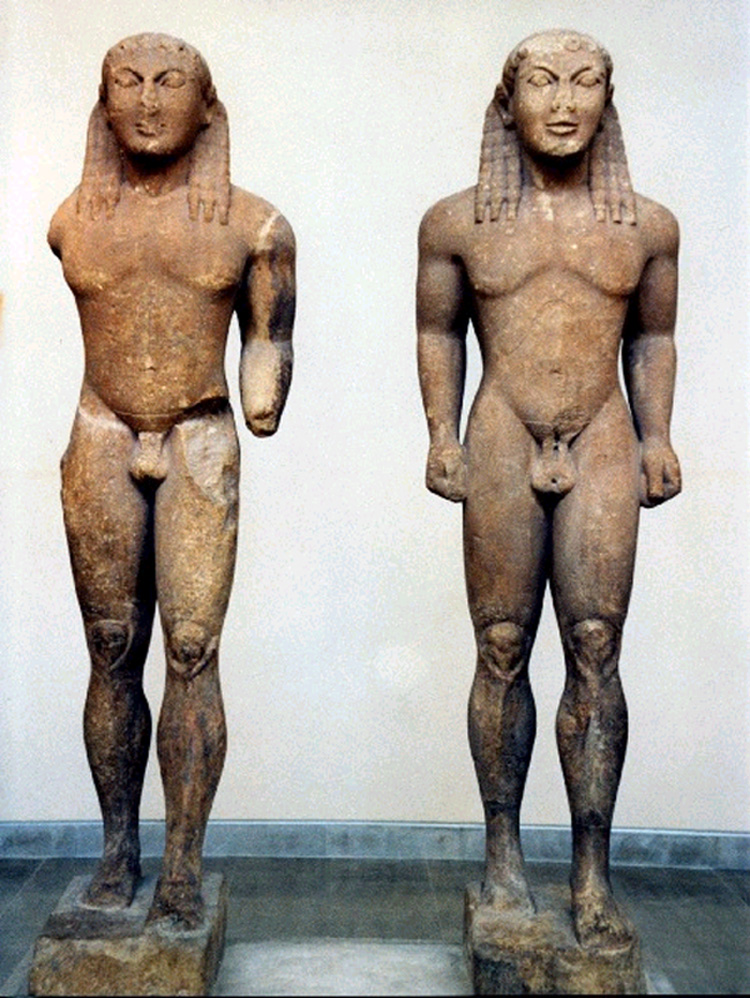
Biton and Kleobis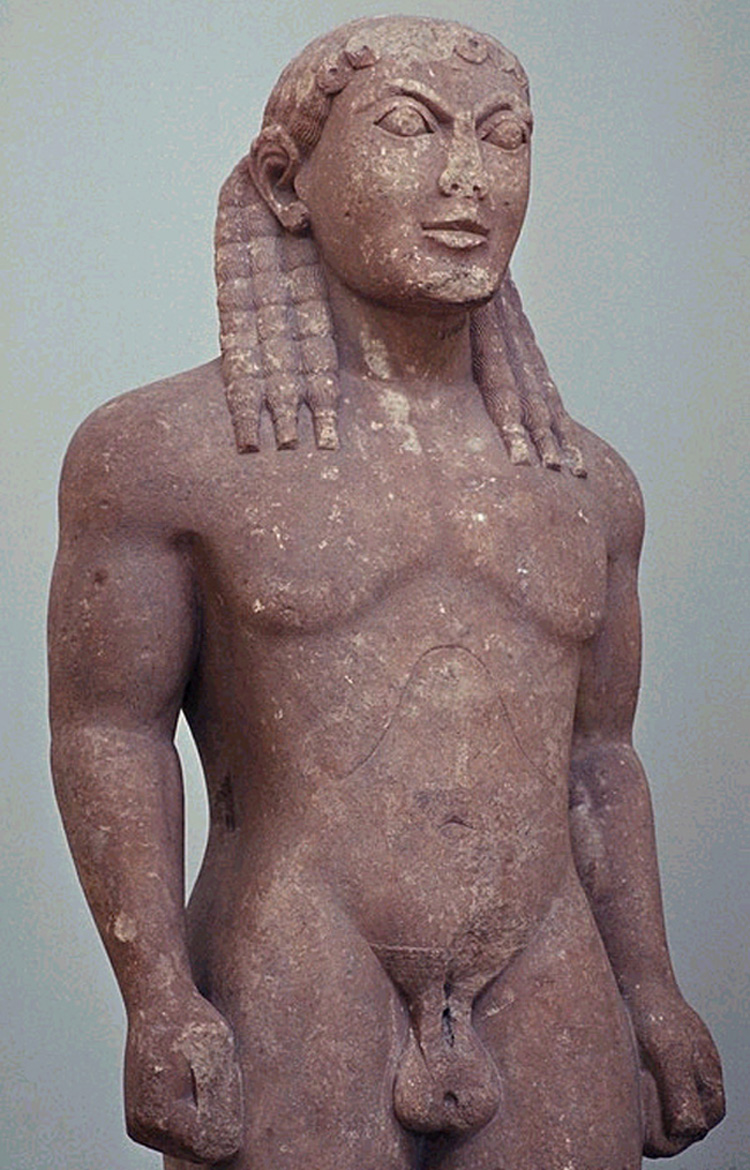
the equal enjoyment of plenty, and the sense of ease which comes from simple living.
while [the laws of Lycurgus prevailed], it was not so much the constitution of a state which Sparta followed, but the way of life of a trained, intelligent individual. To put it differently, just as poets tell tales of Herakles roaming the world with his lion-skin and his club, punishing lawless and bestial despots, so this city used to control a willingly compliant Greece with just a skytale [a device for sending messages in code] and a cloak. She would disband unjust tyrannies and juntas in the states, as well as arbitrating in wars and quelling civil strife, frequently without having raised a single shield, but merely with the dispatch of one envoy, to whose instructions everyone would instantly respond, like bees which on the appearance of their leader cluster together and range themselves in order. This demonstates how outstanding was Sparta's Good Order and justice!
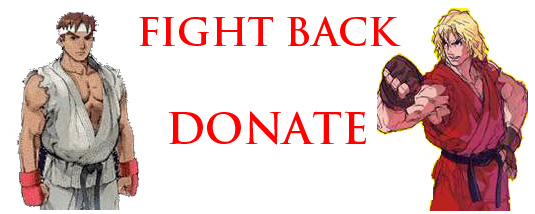
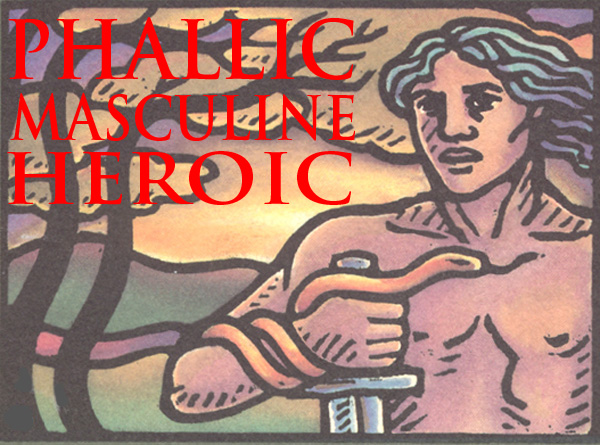






| Heroes Site Guide | Toward a New Concept of M2M | What Sex Is |In Search of an Heroic Friend | Masculinity and Spirit |
| Jocks and Cocks |
Gilgamesh | The Greeks | Hoplites! | The Warrior Bond | Nude Combat | Phallic, Masculine, Heroic | Reading |
| Heroic Homosex Home | Cockrub Warriors Home | Heroes Home | Story of Bill and Brett Home | Frot Club Home |
| Definitions | FAQs | Join Us | Contact Us | Tell Your Story |




